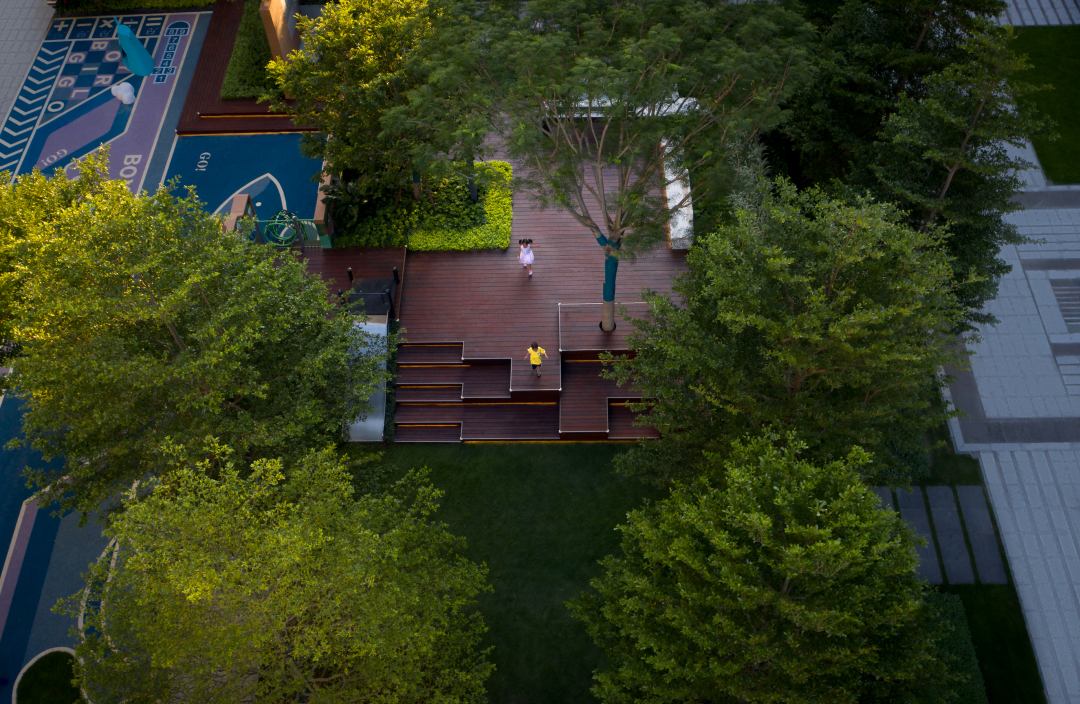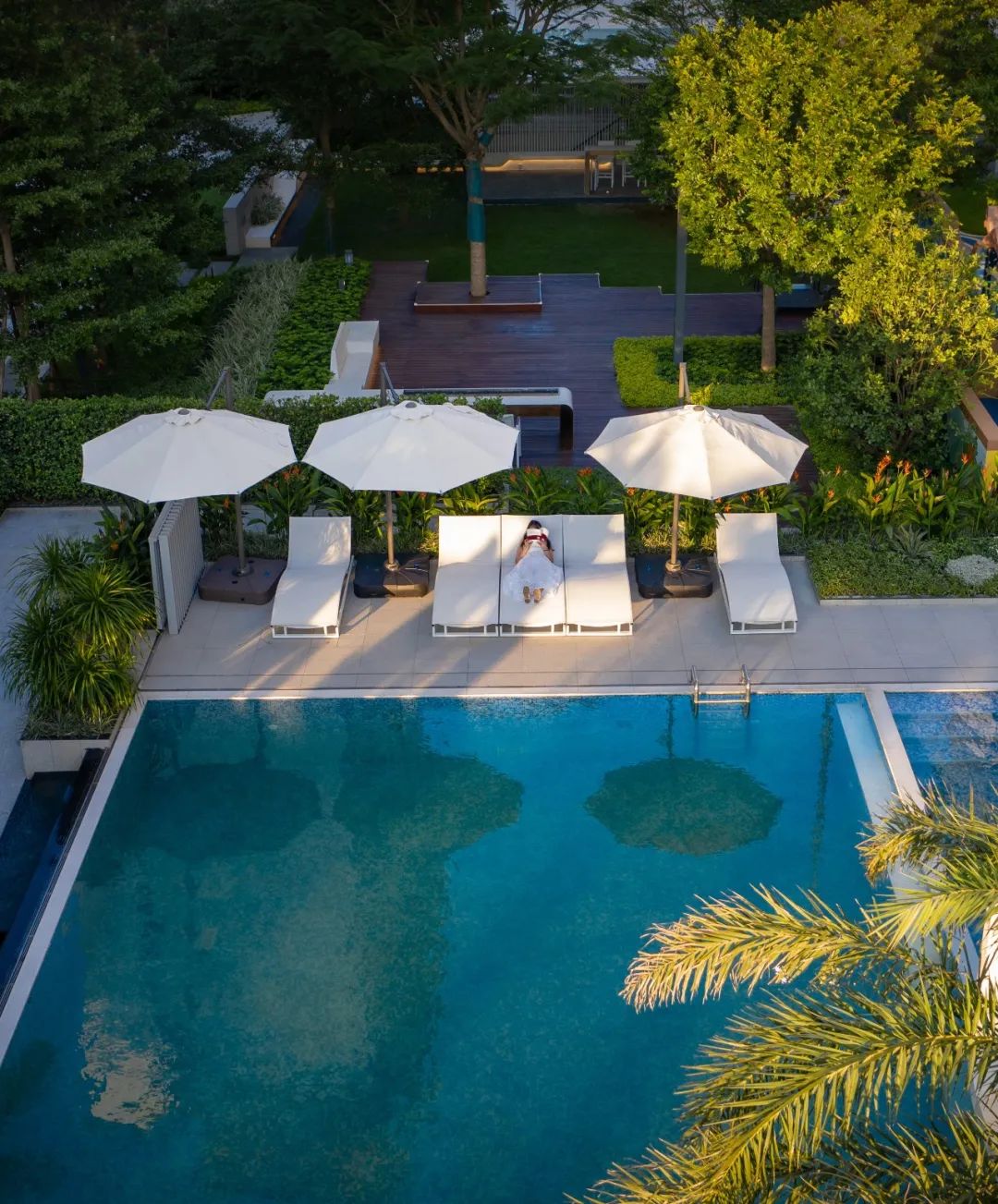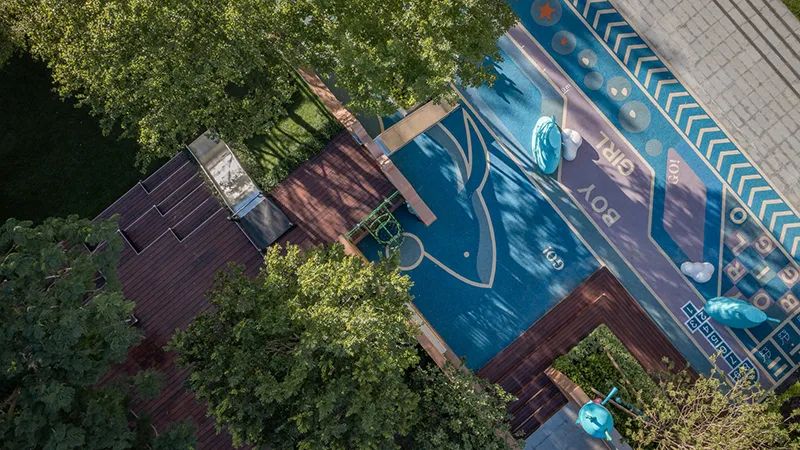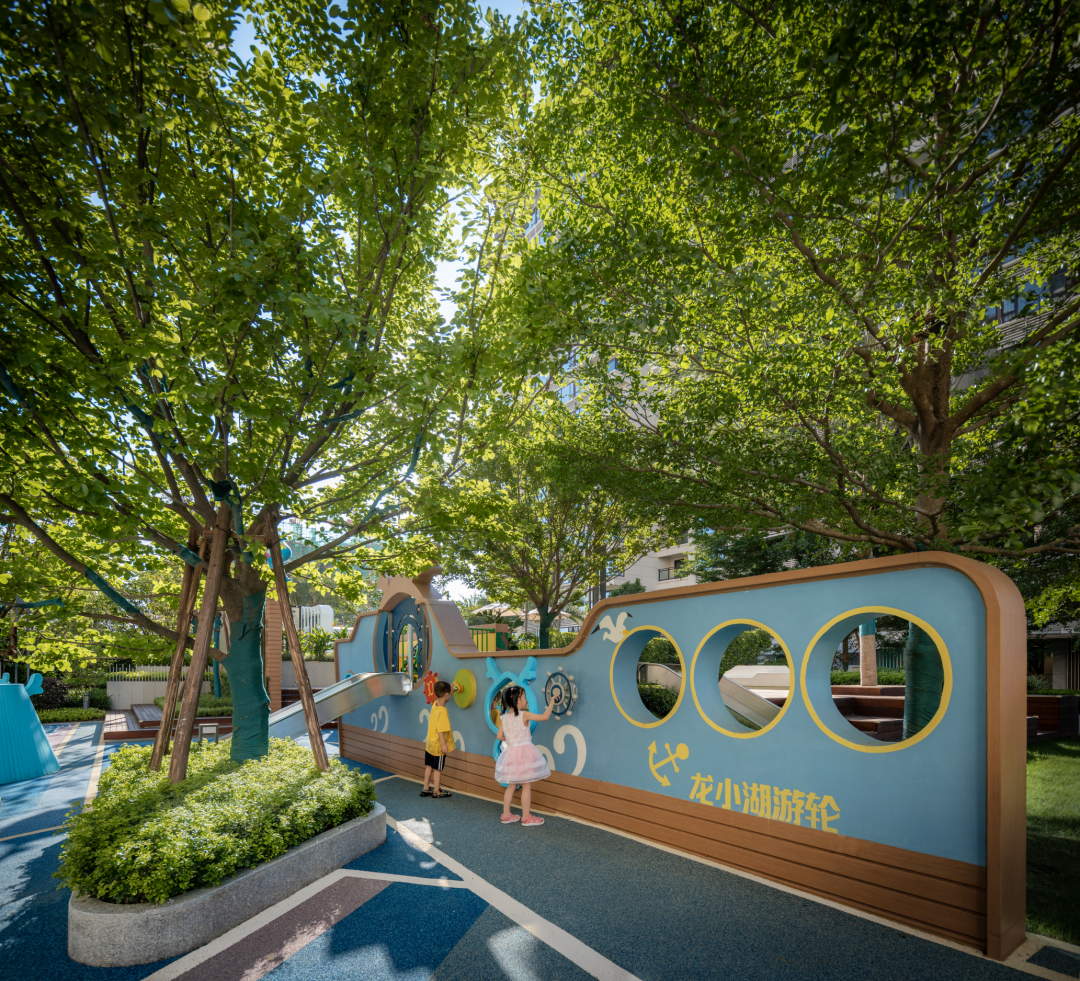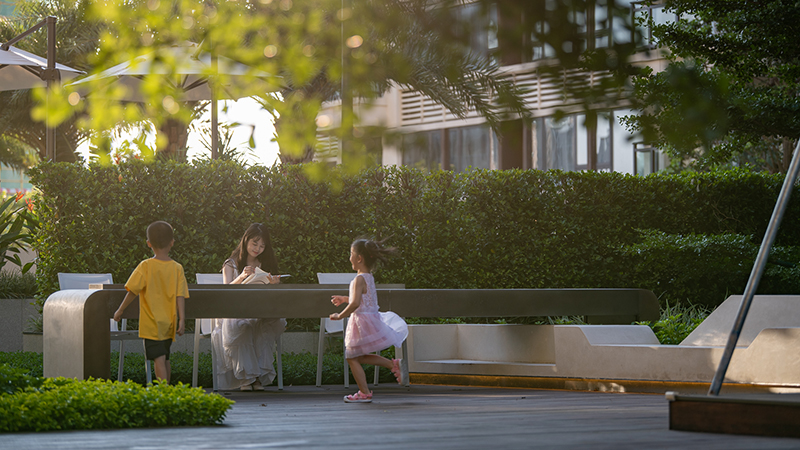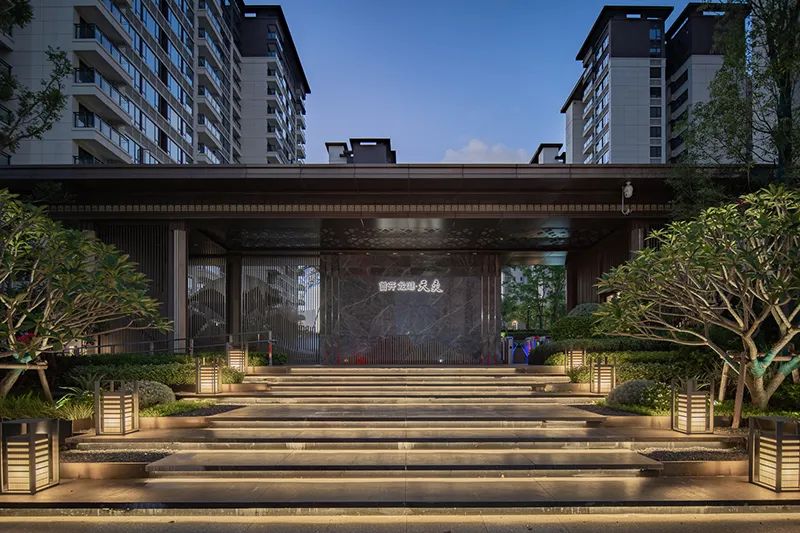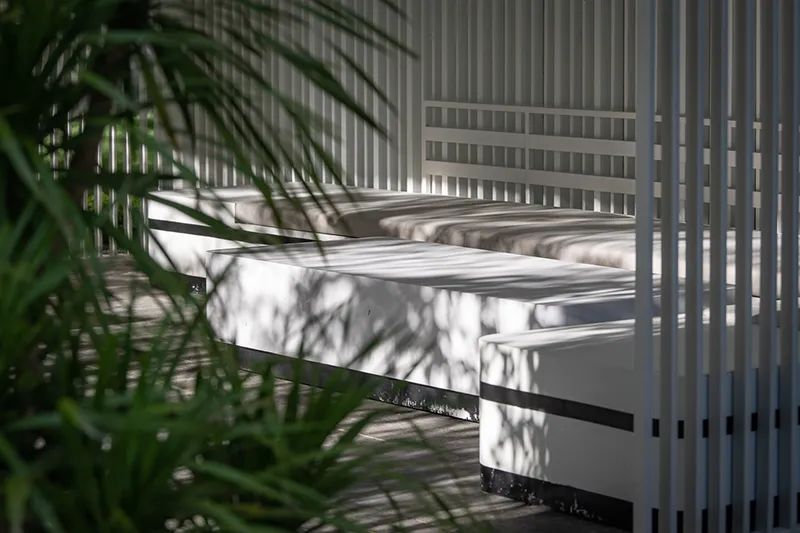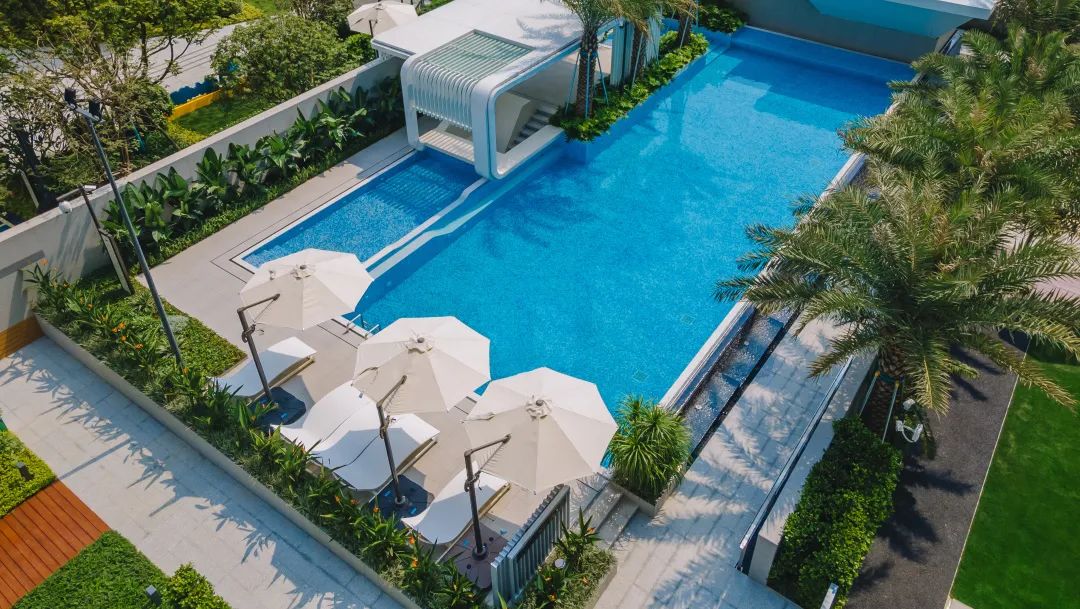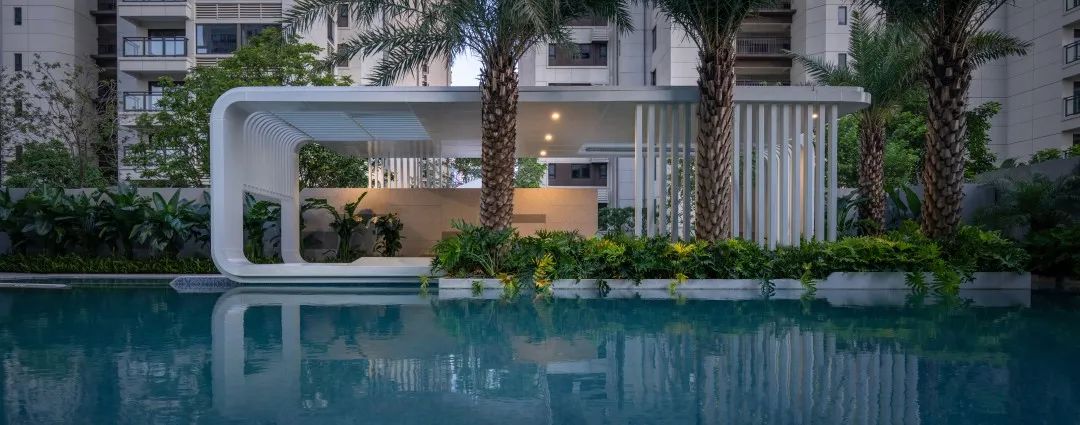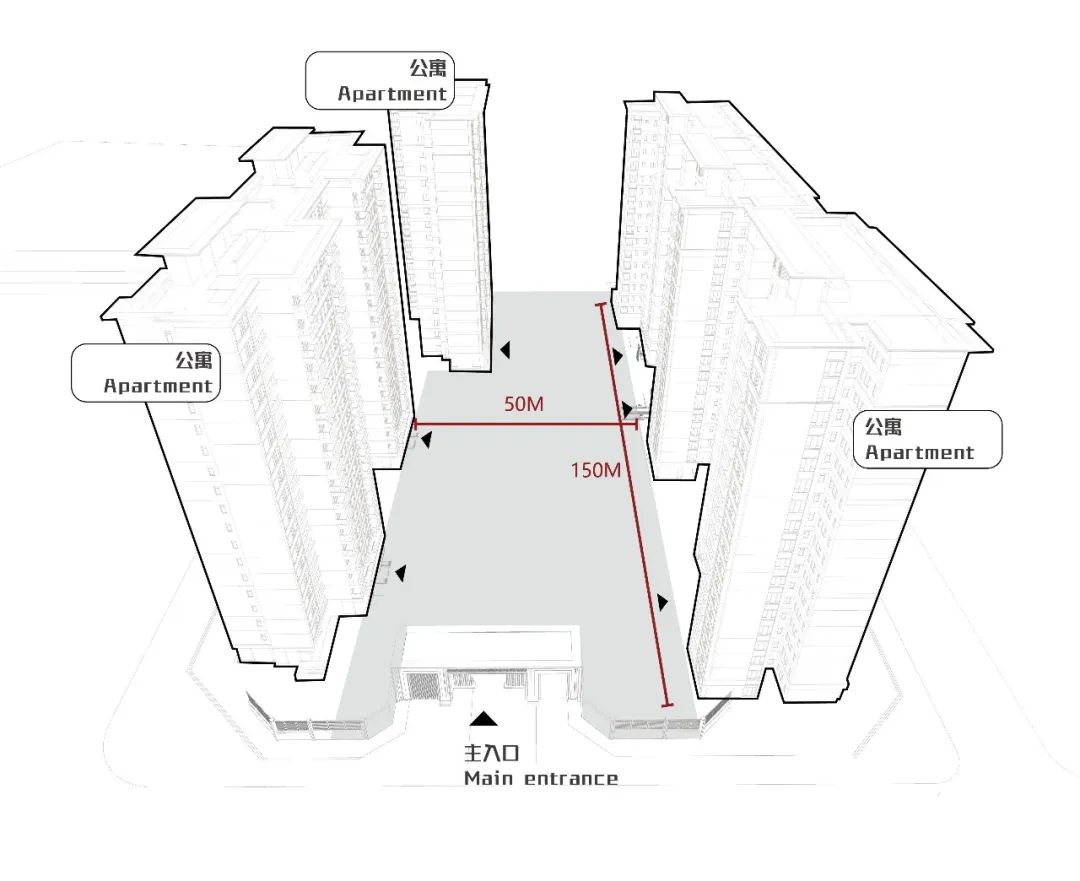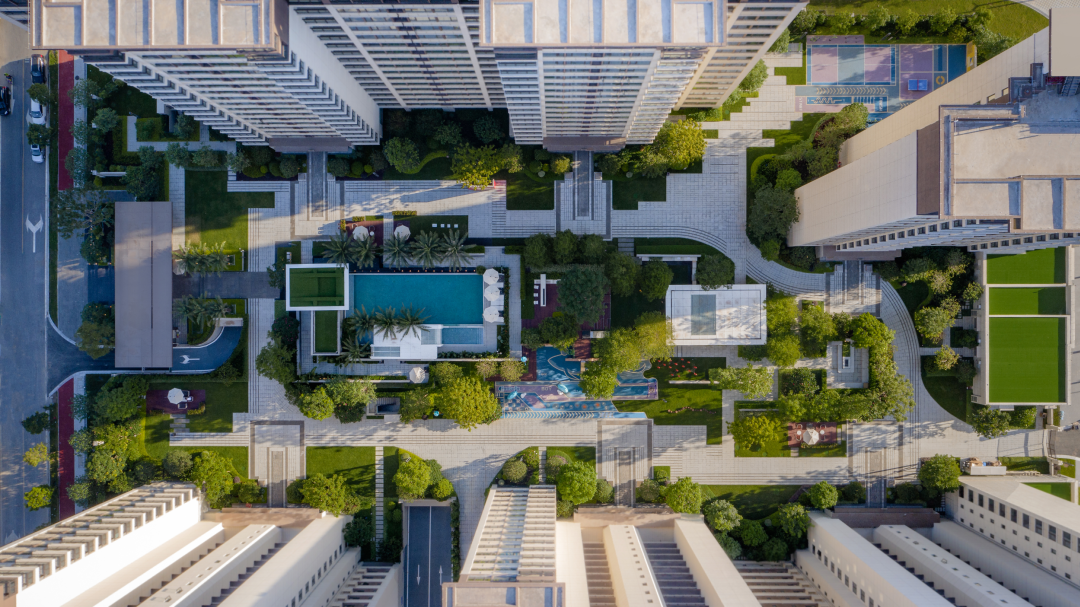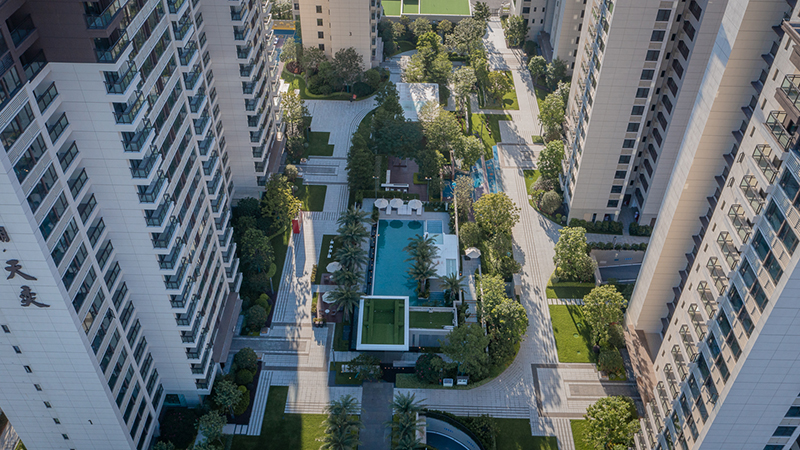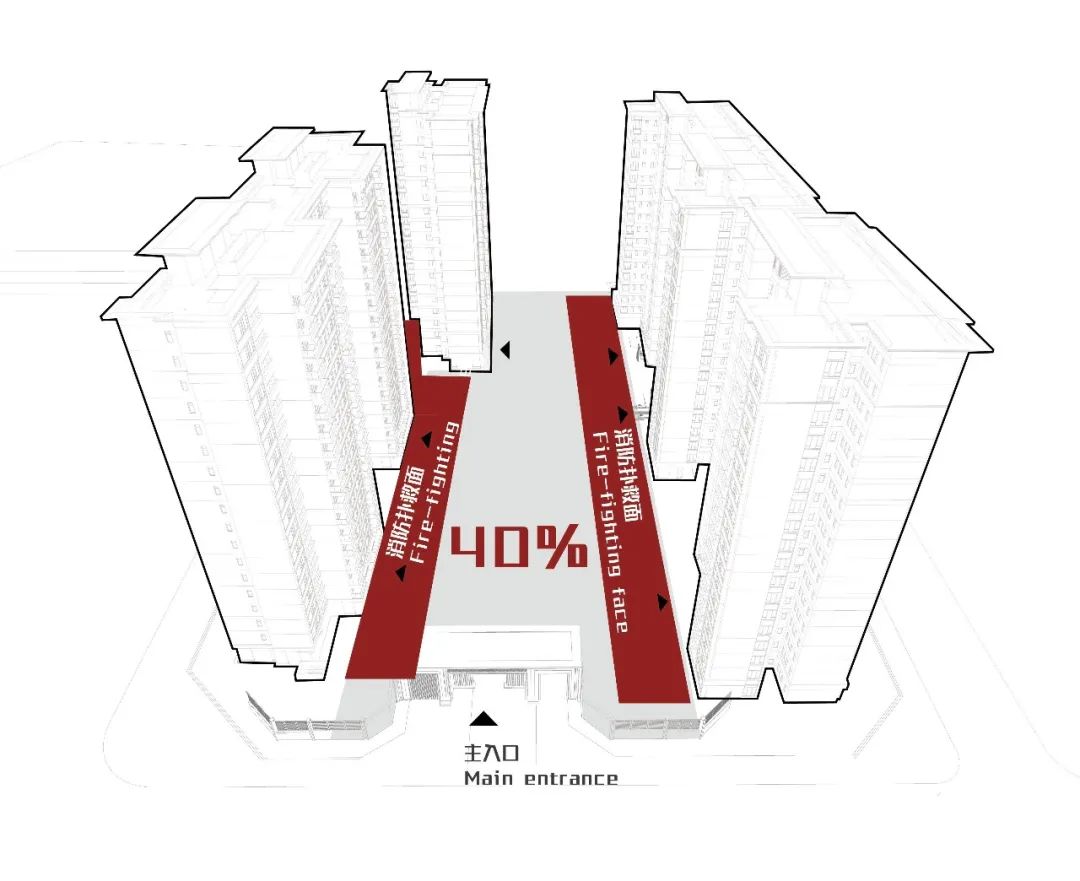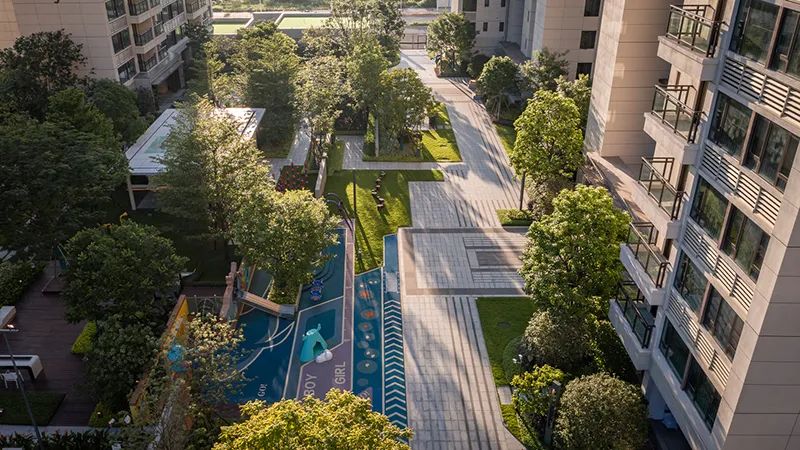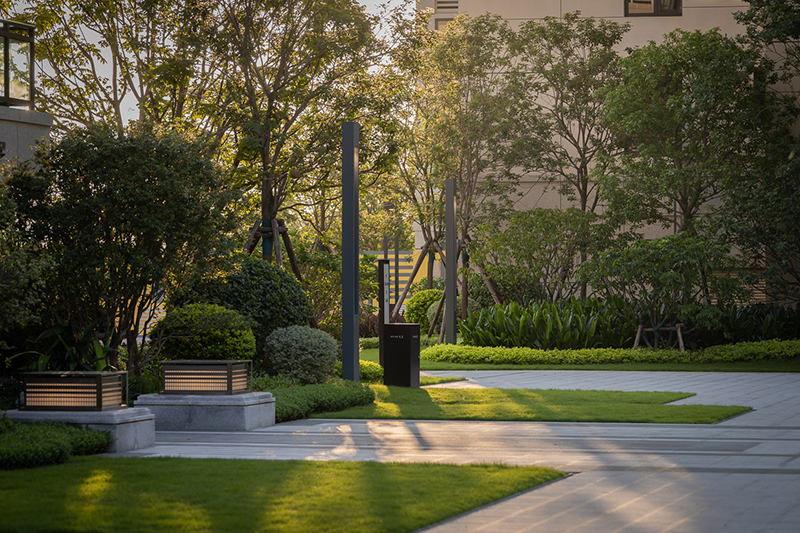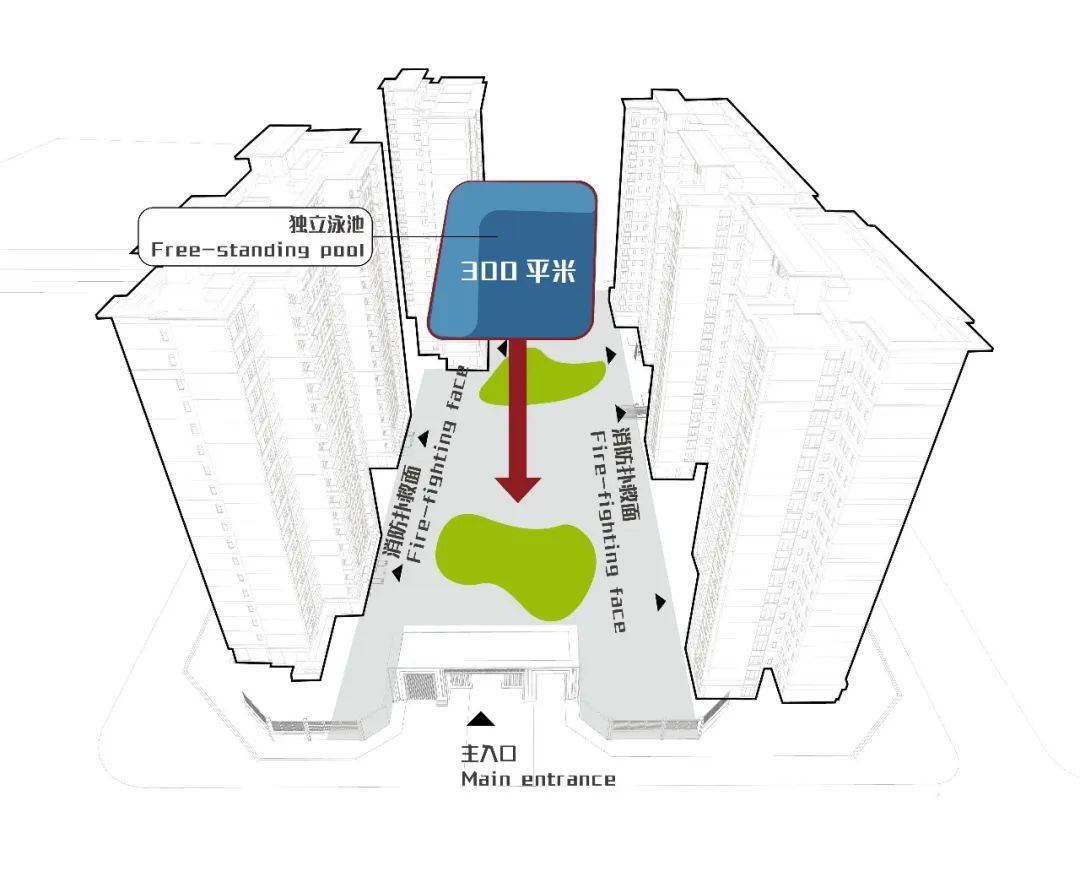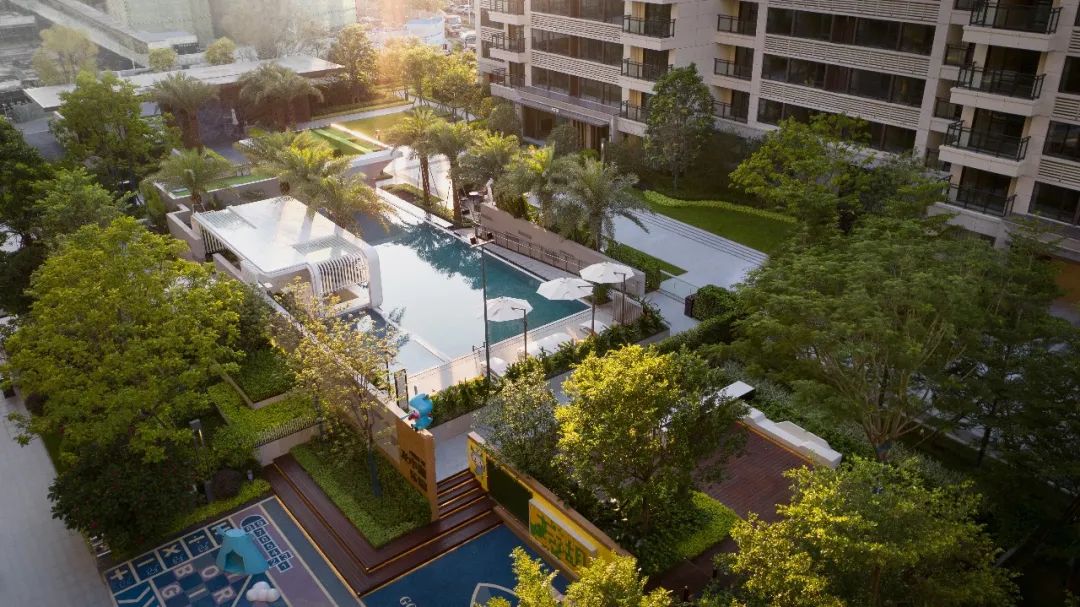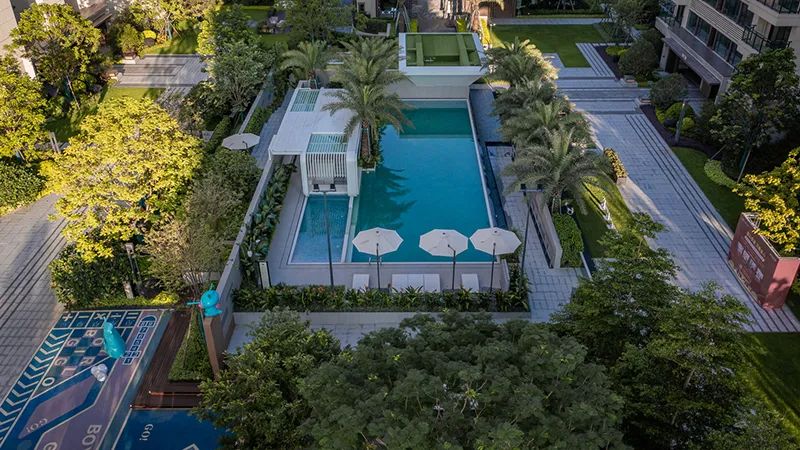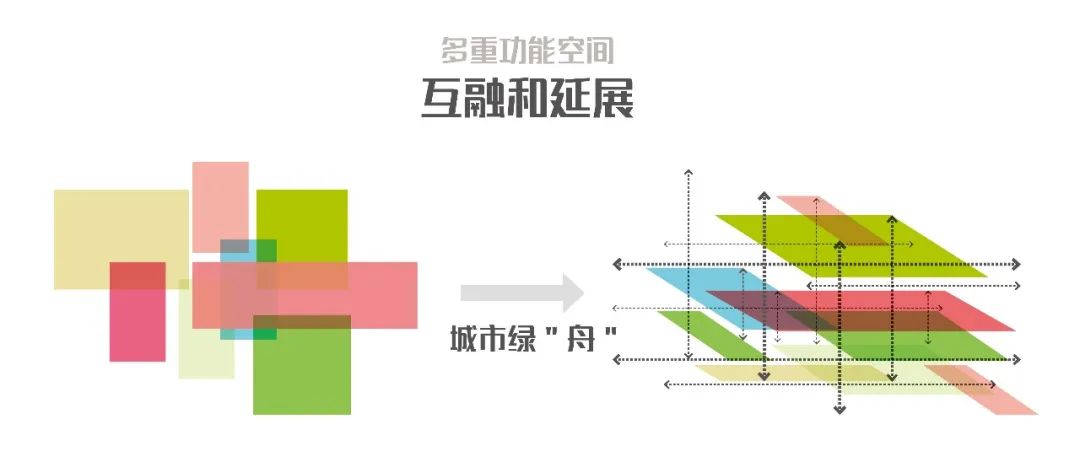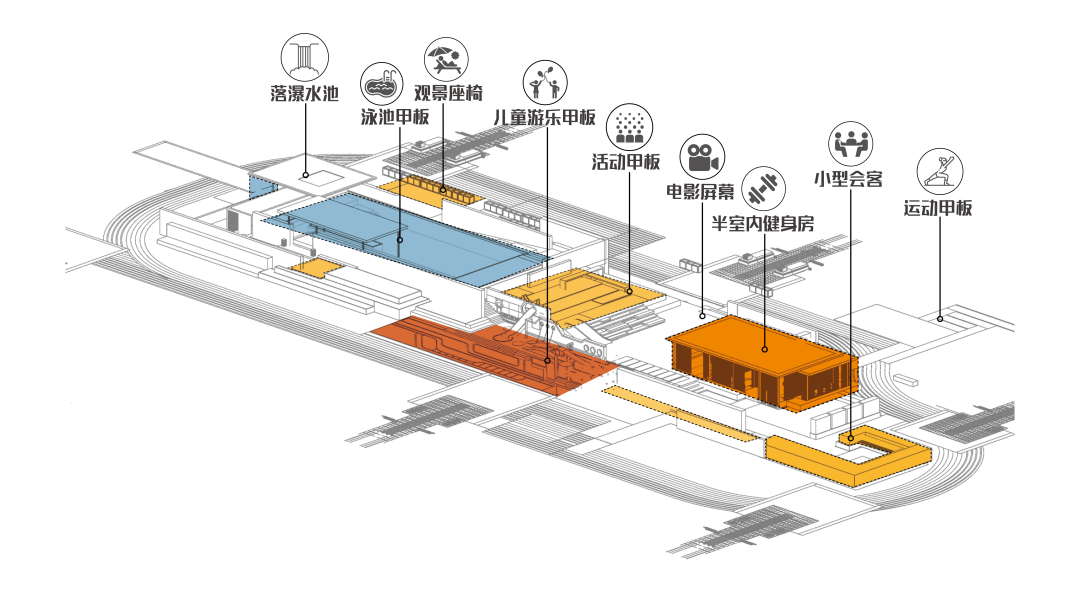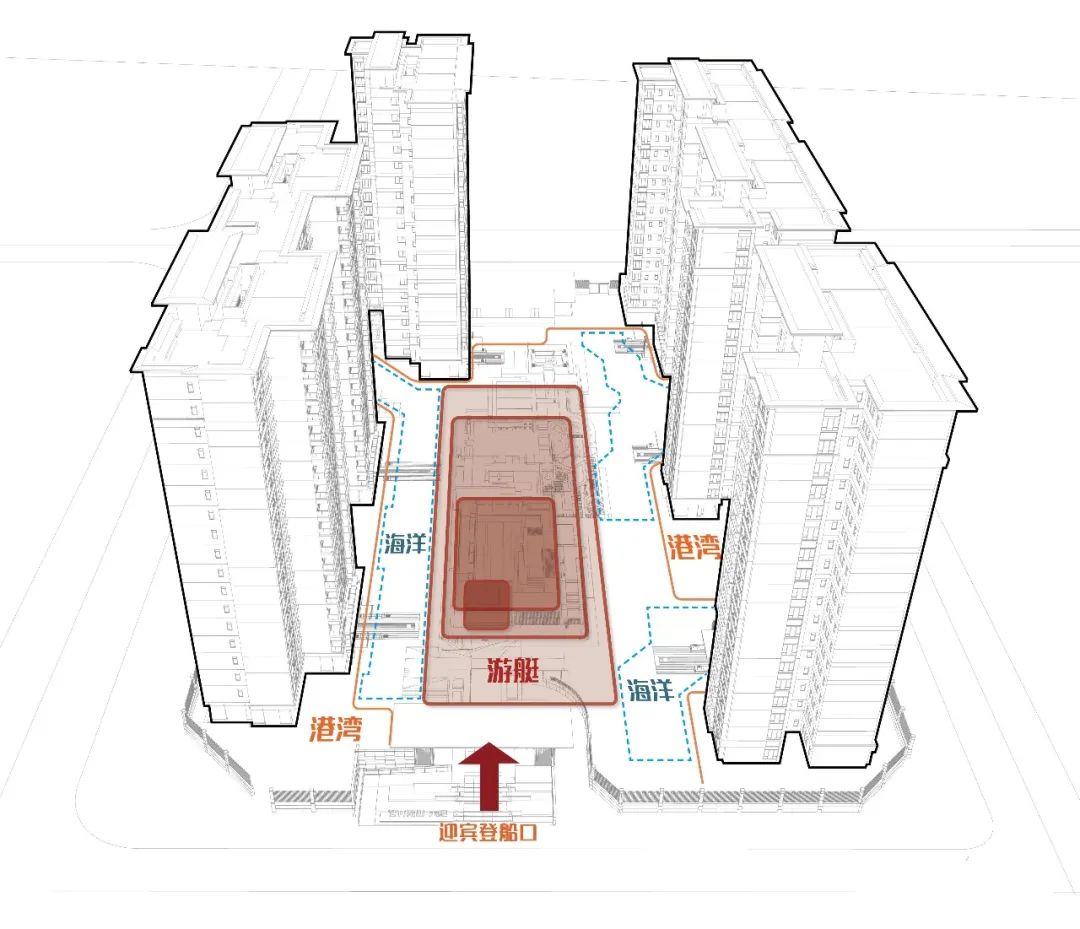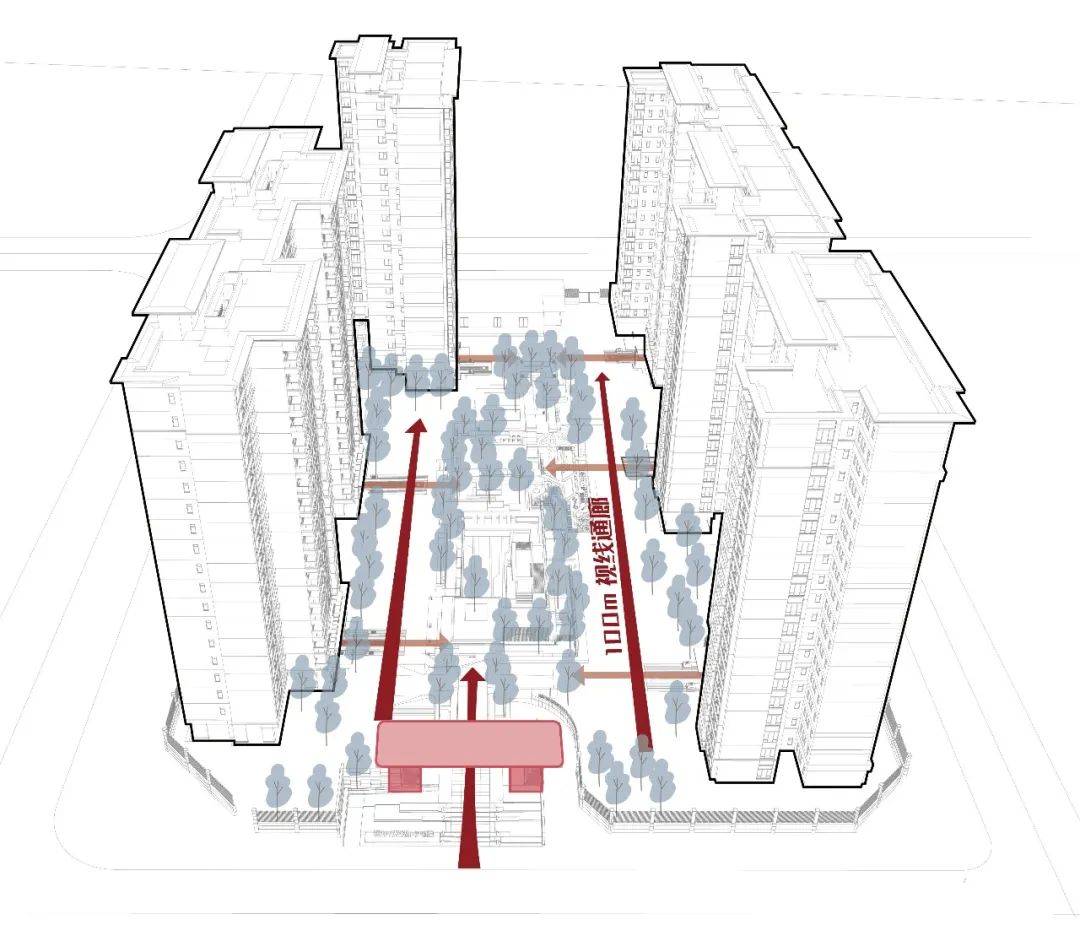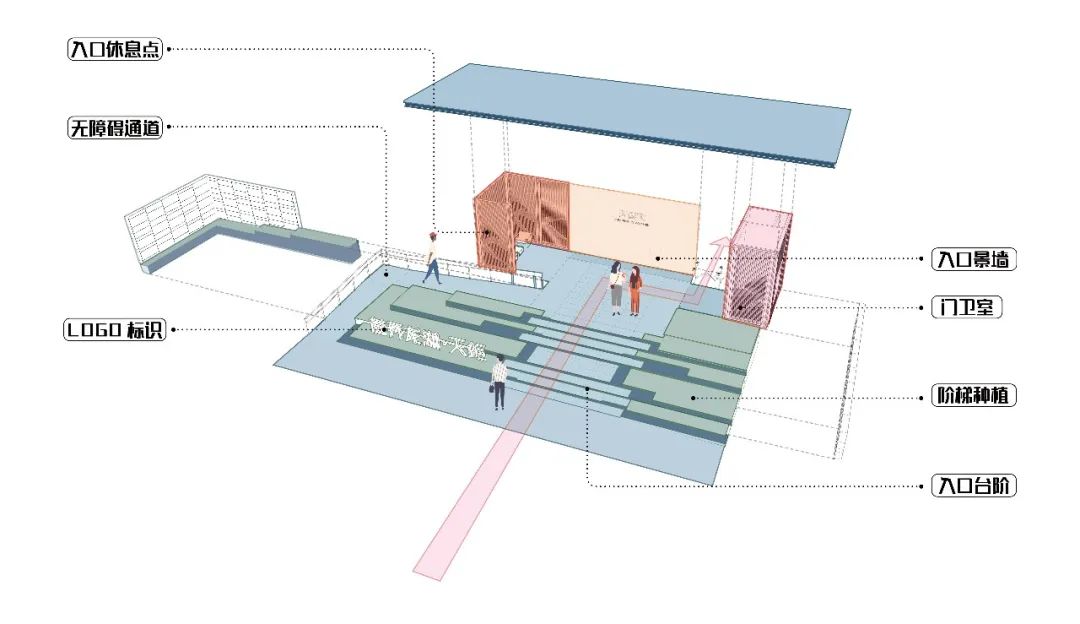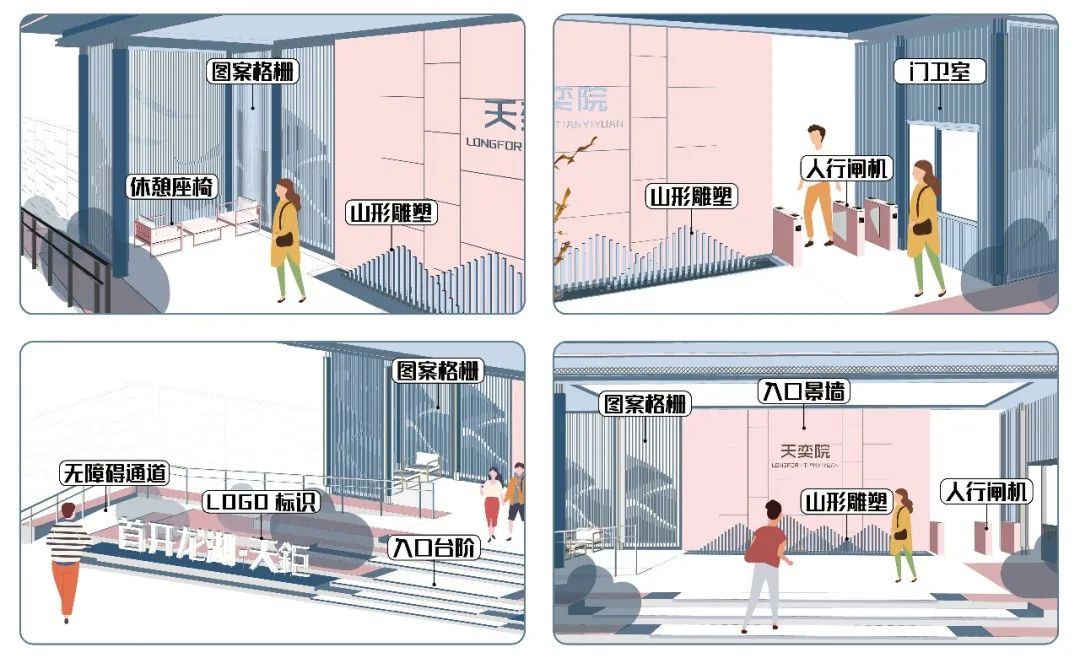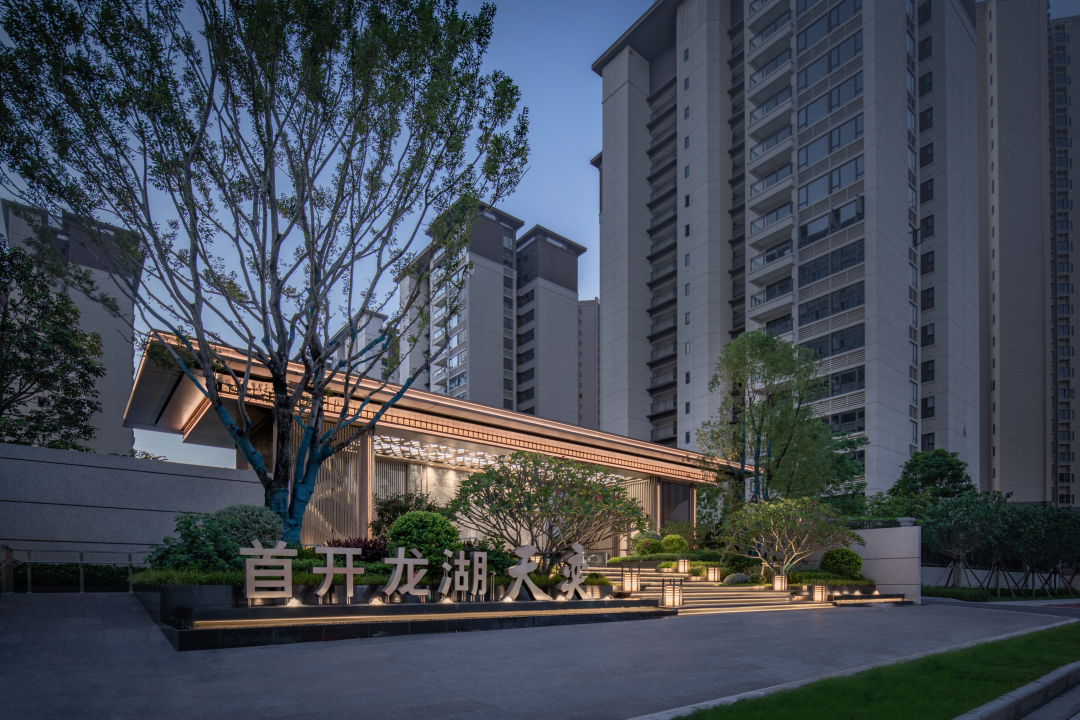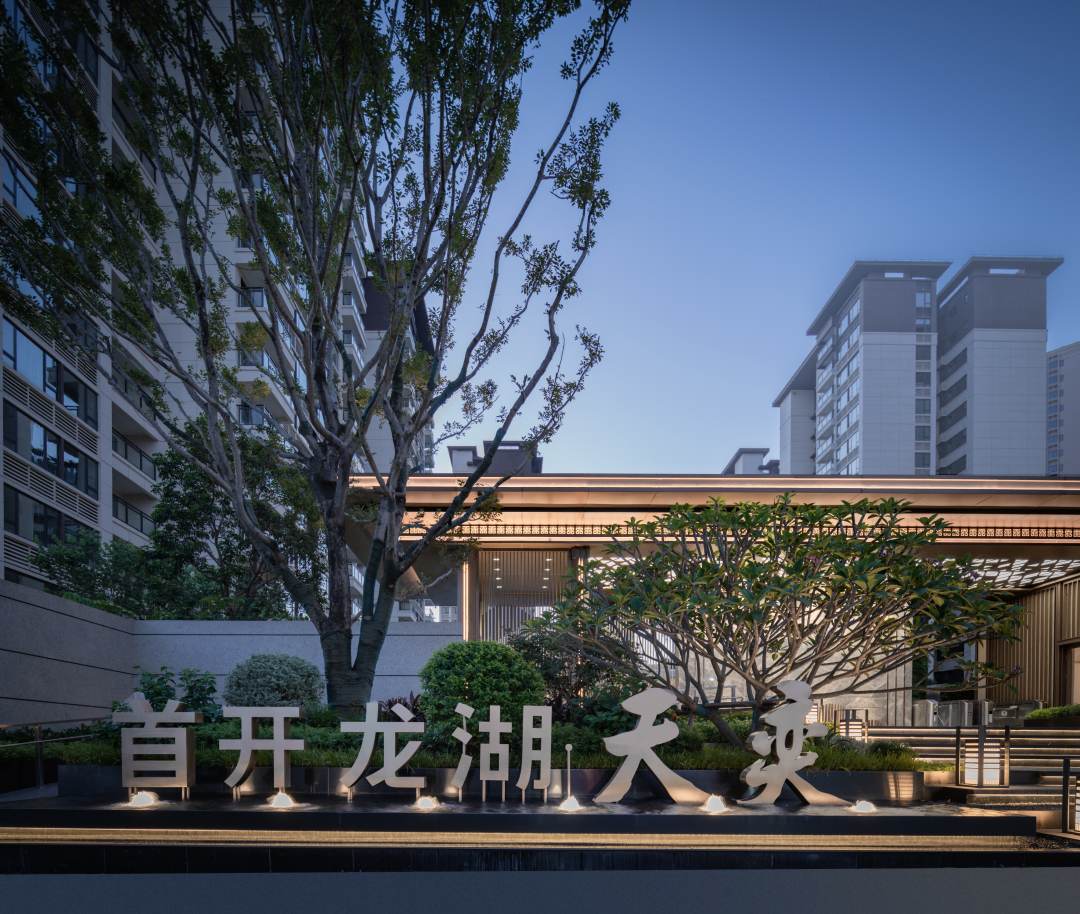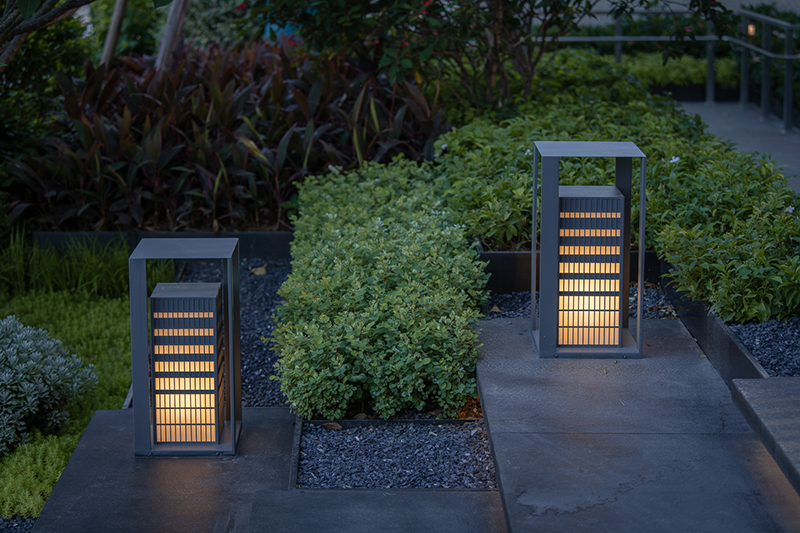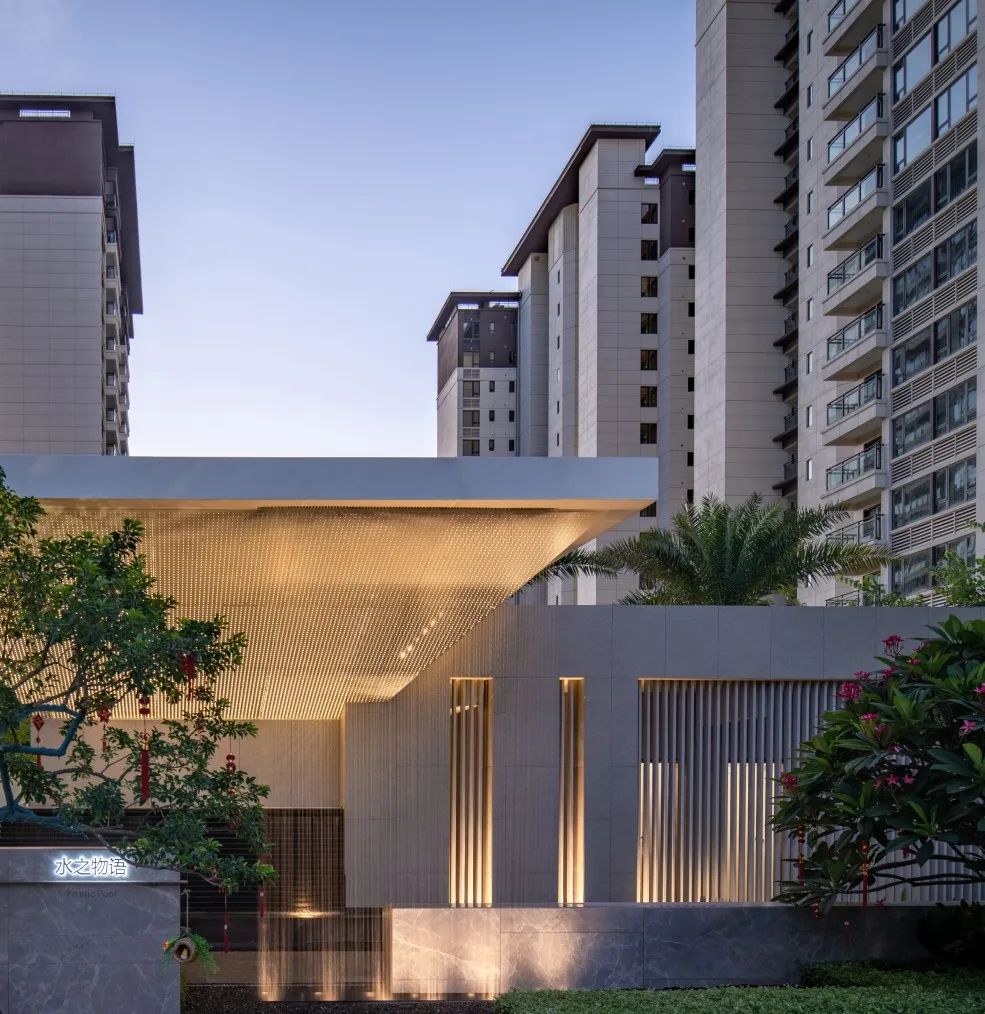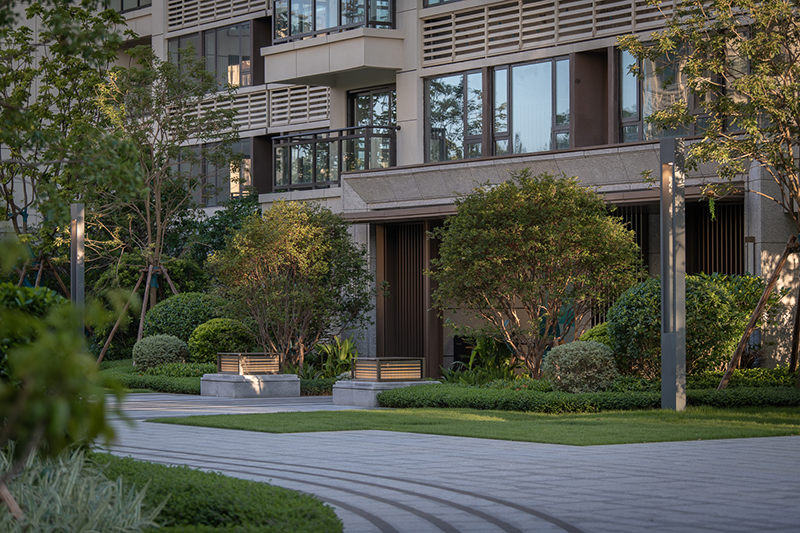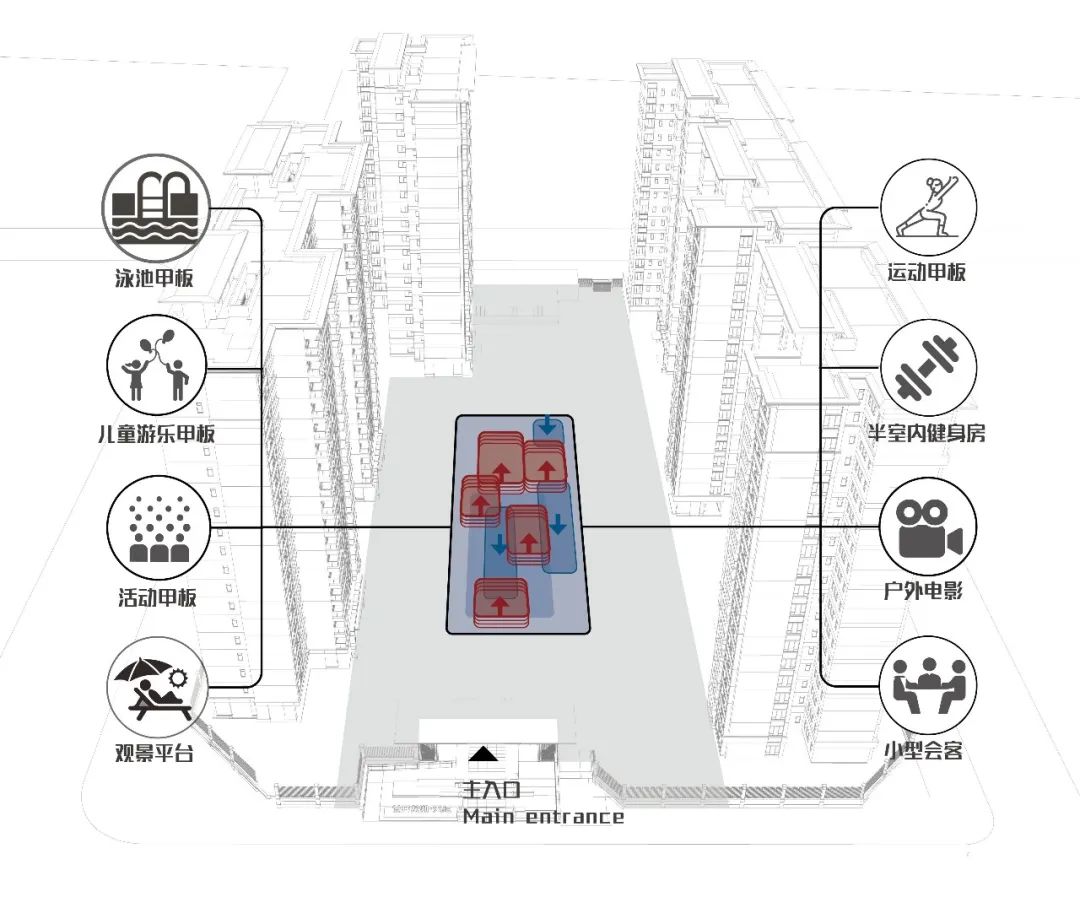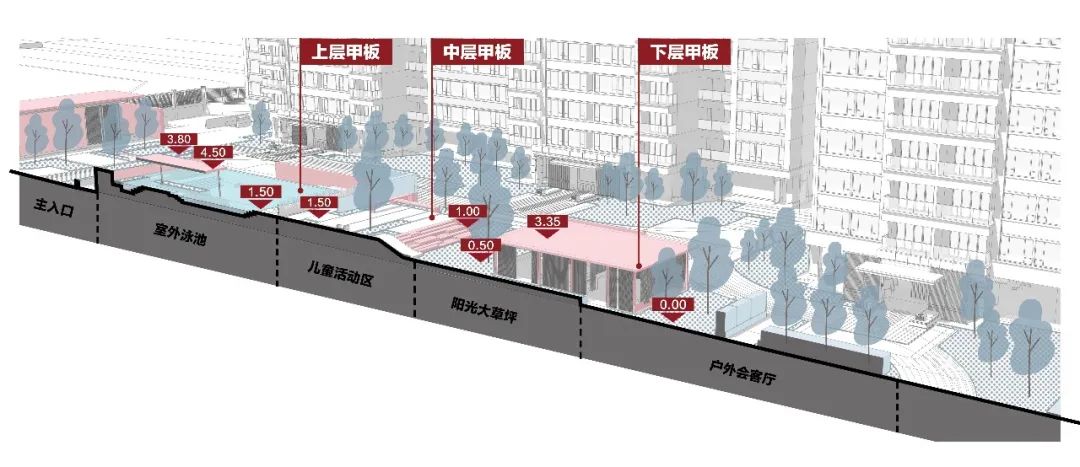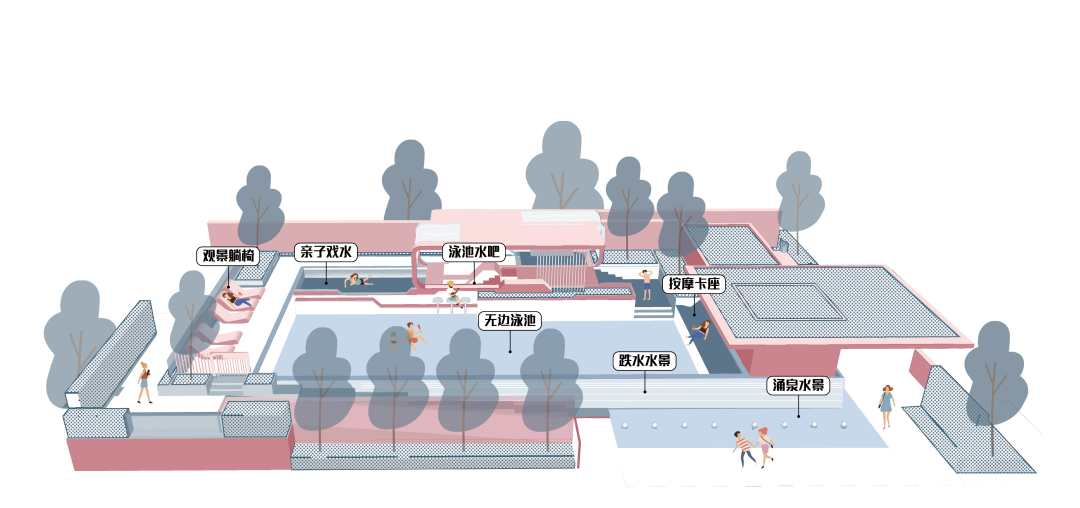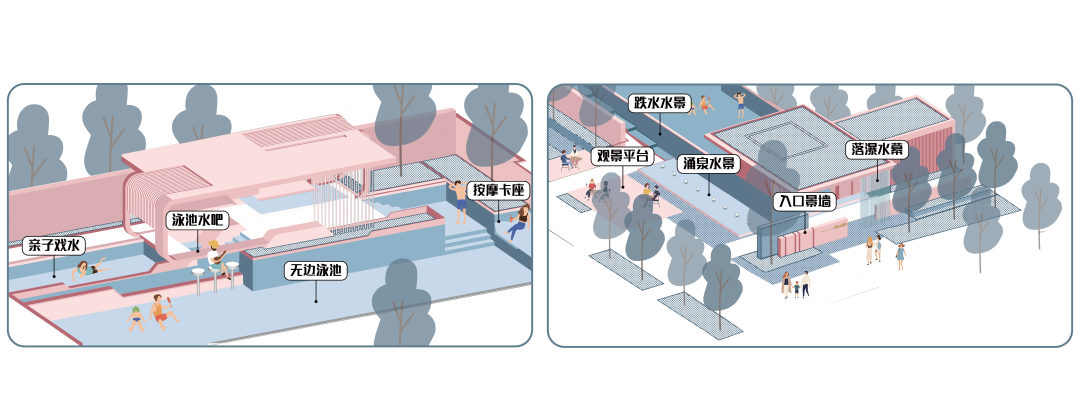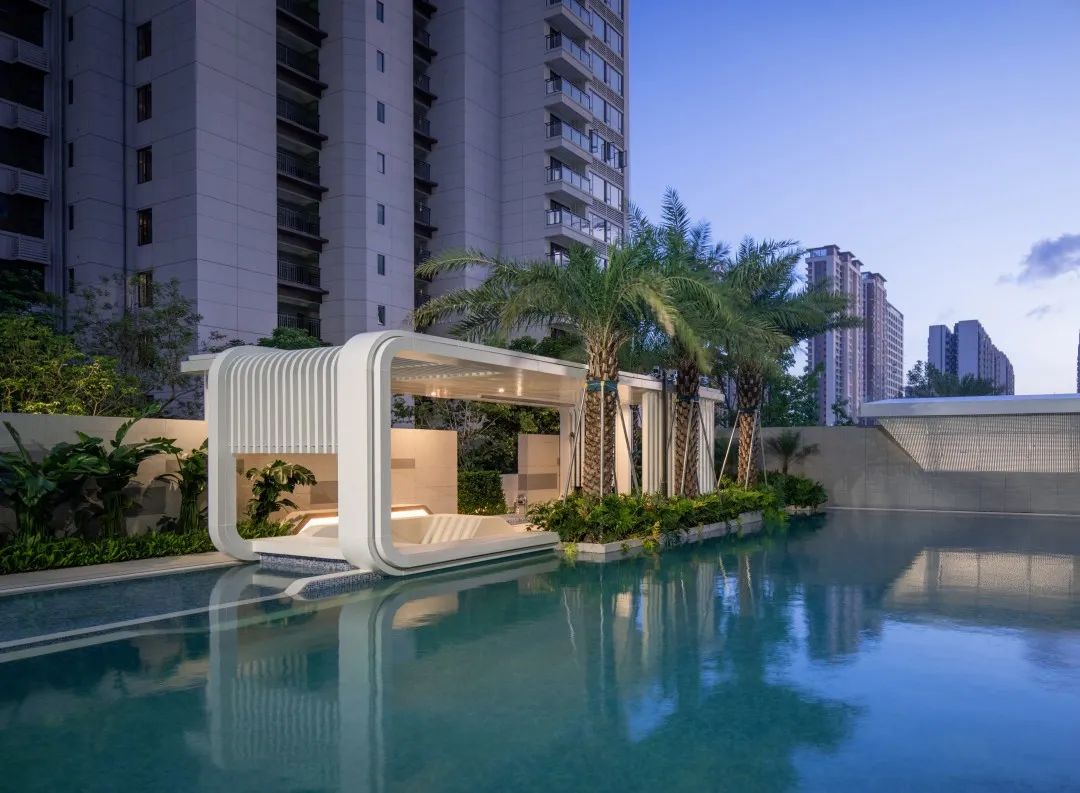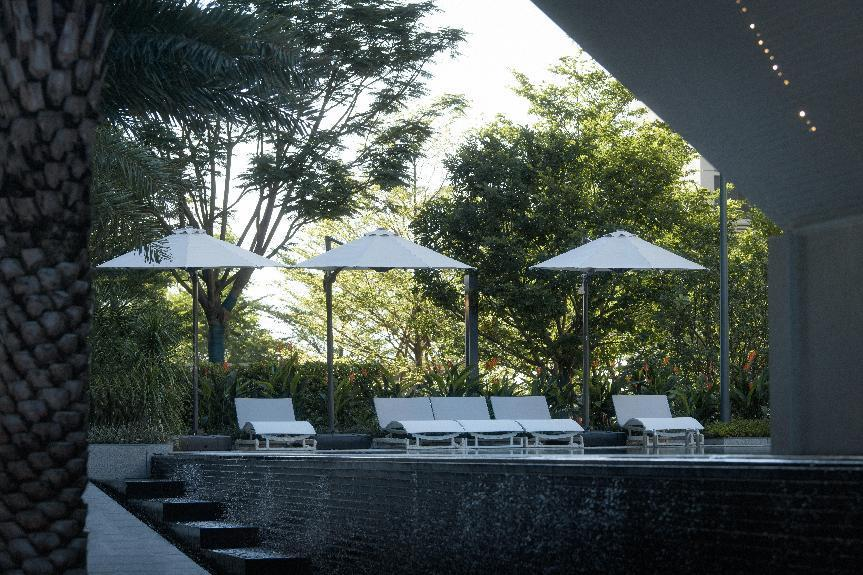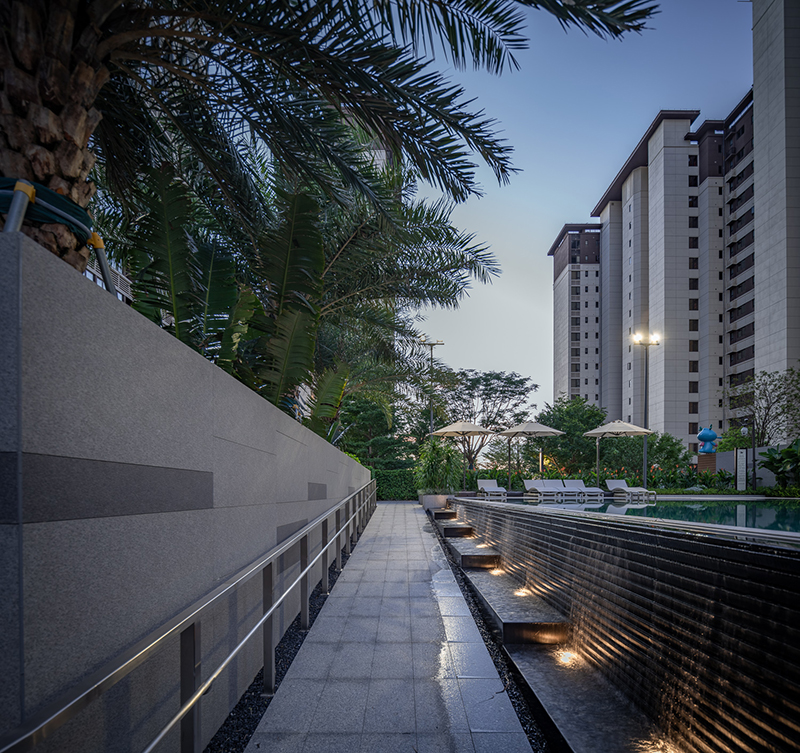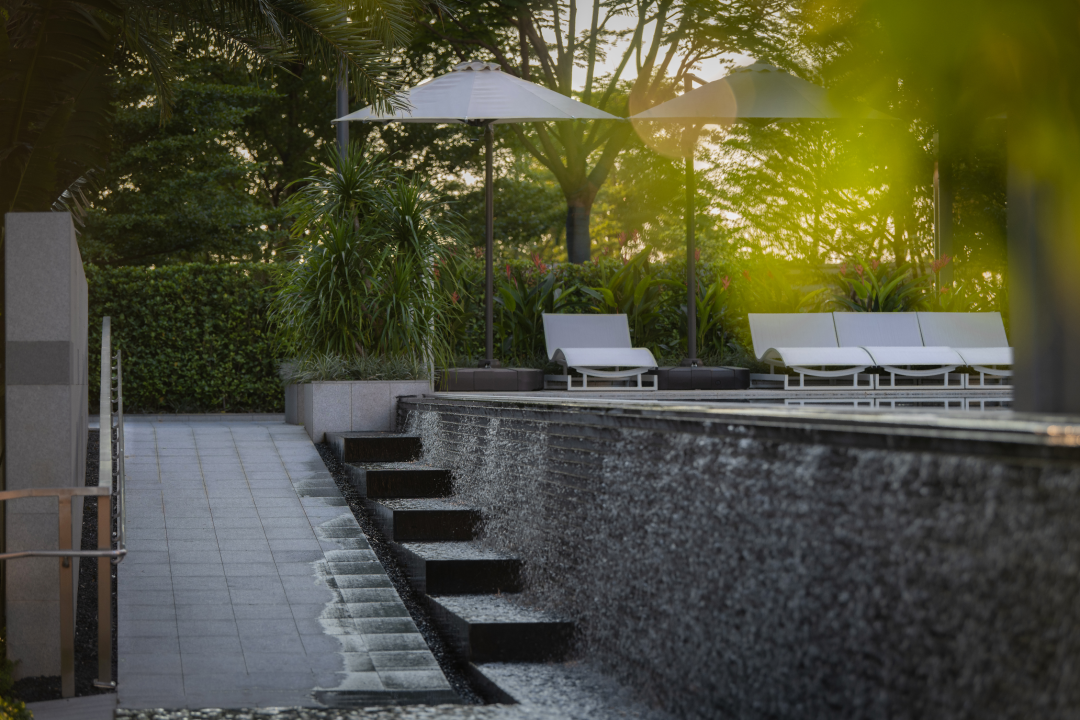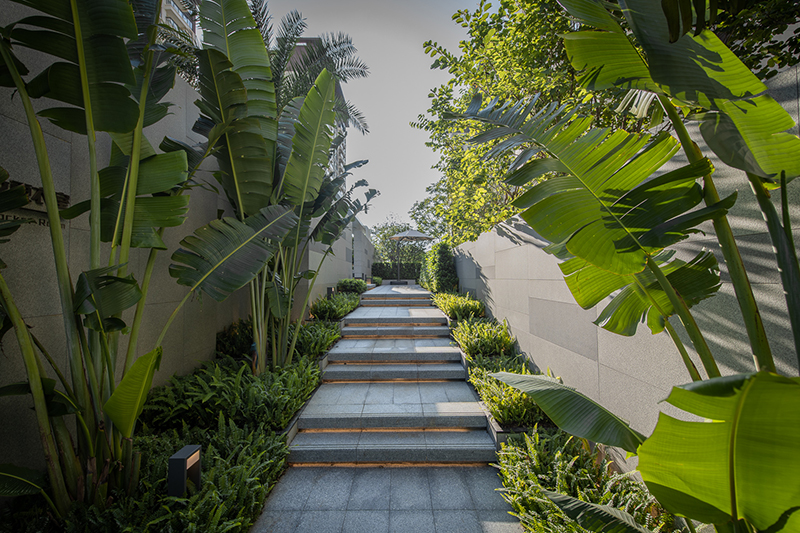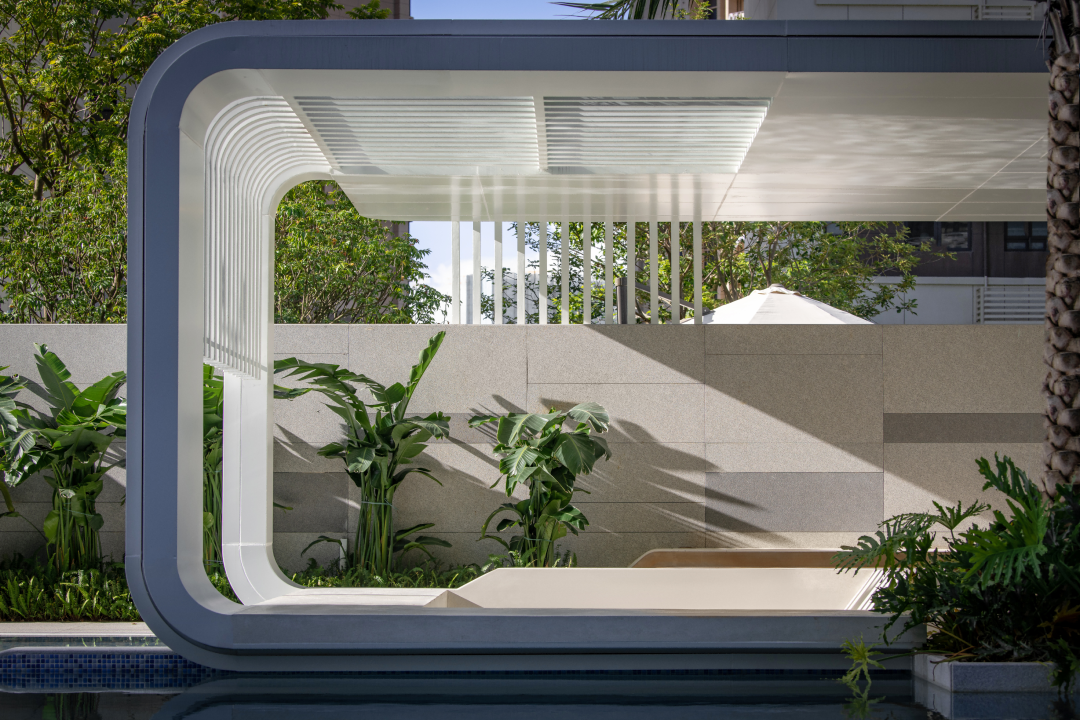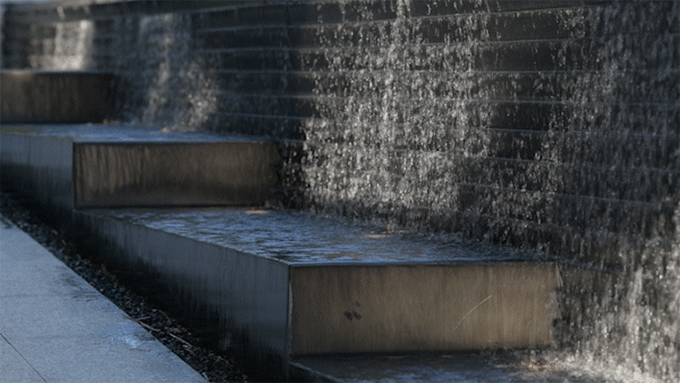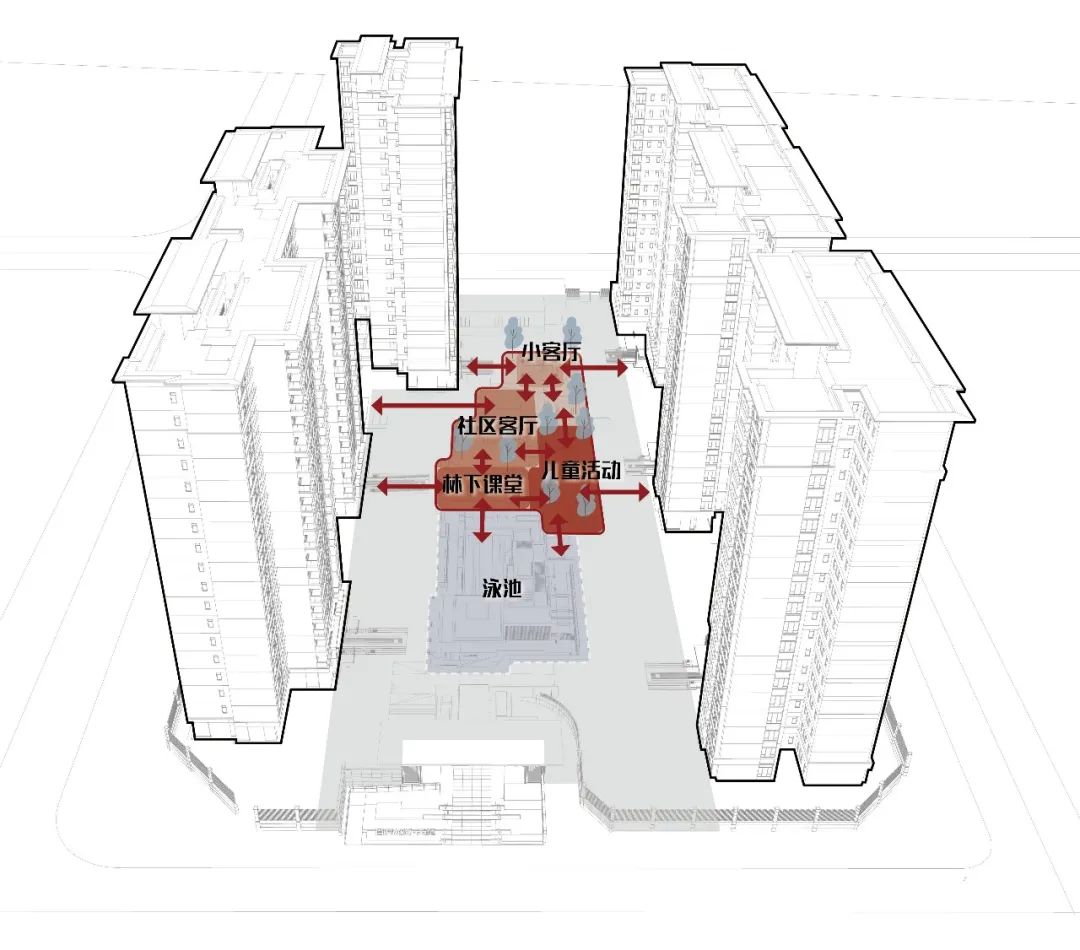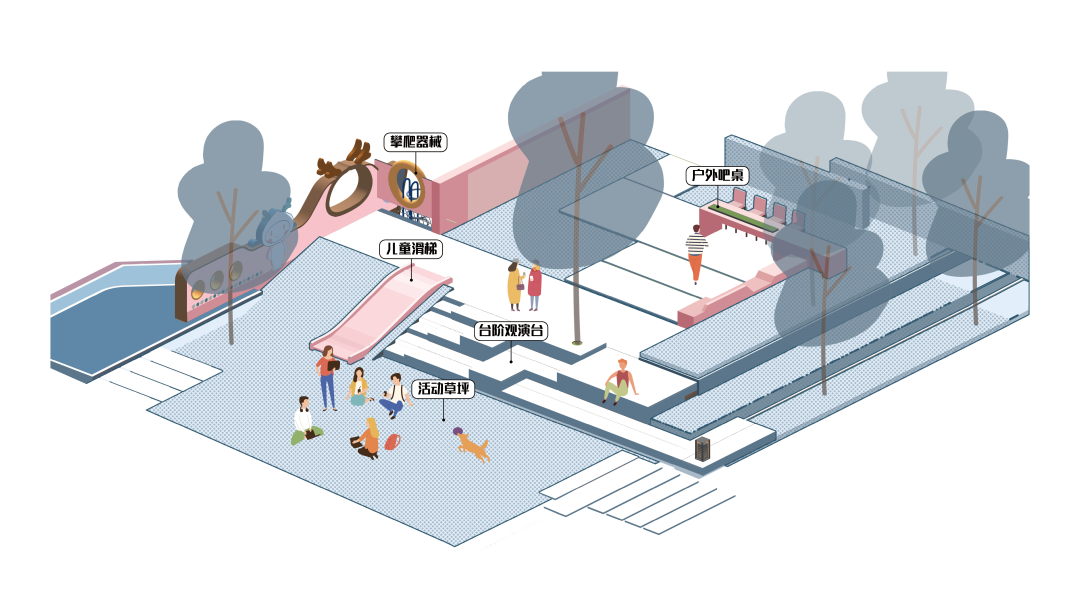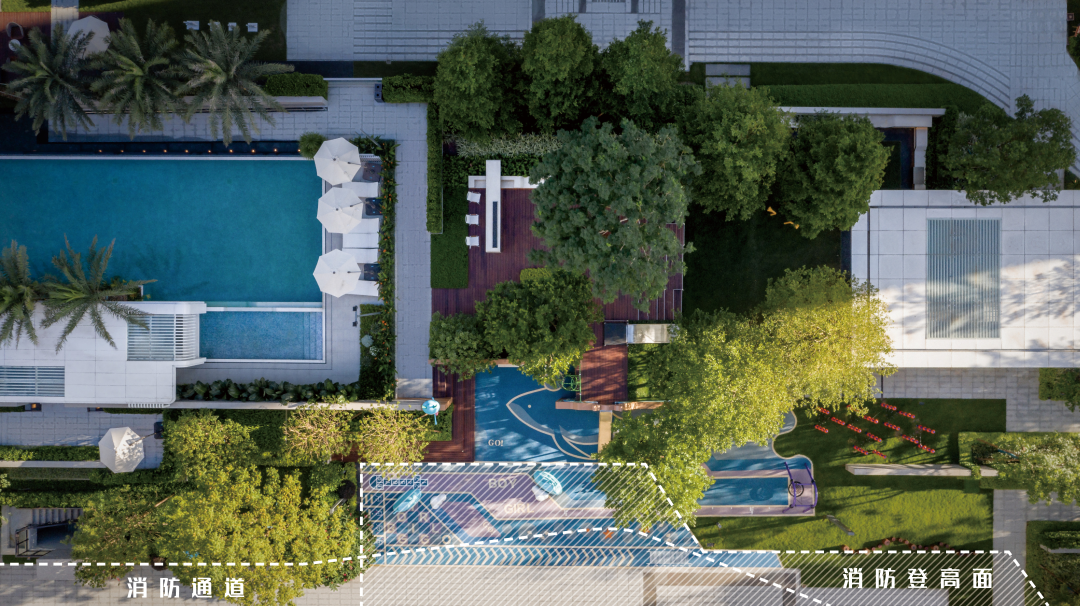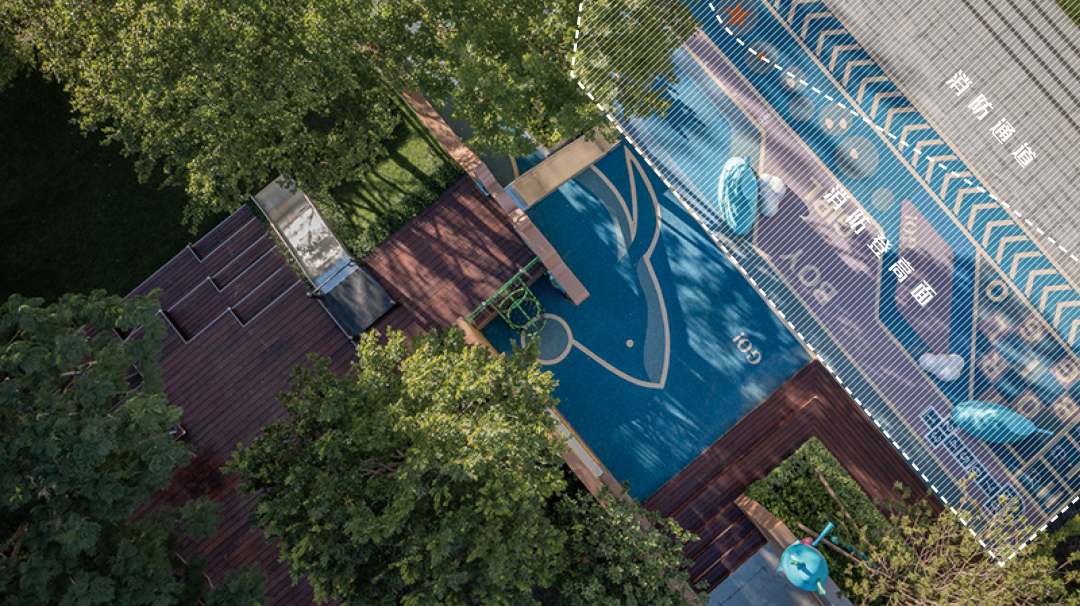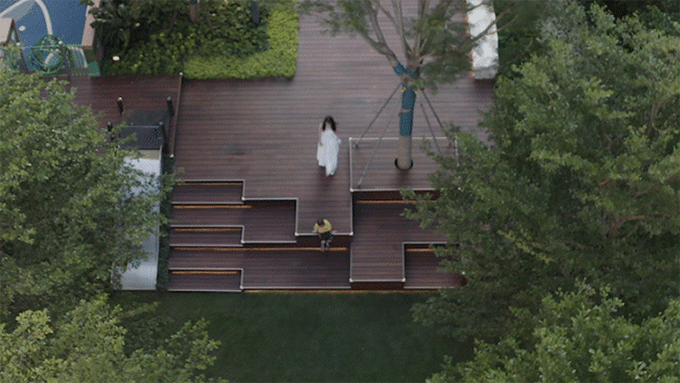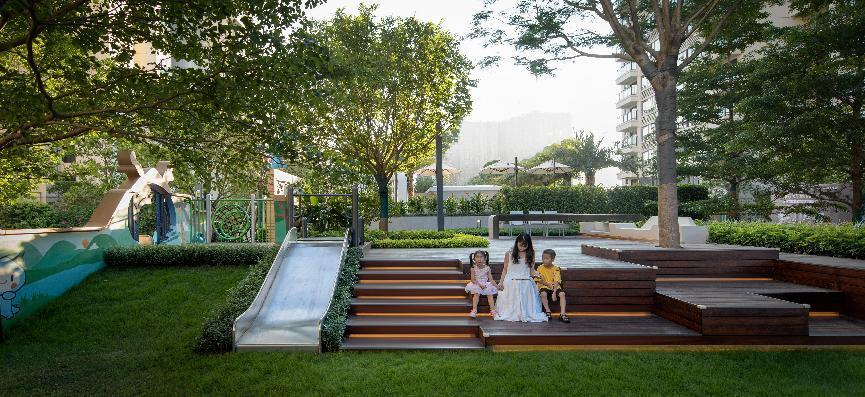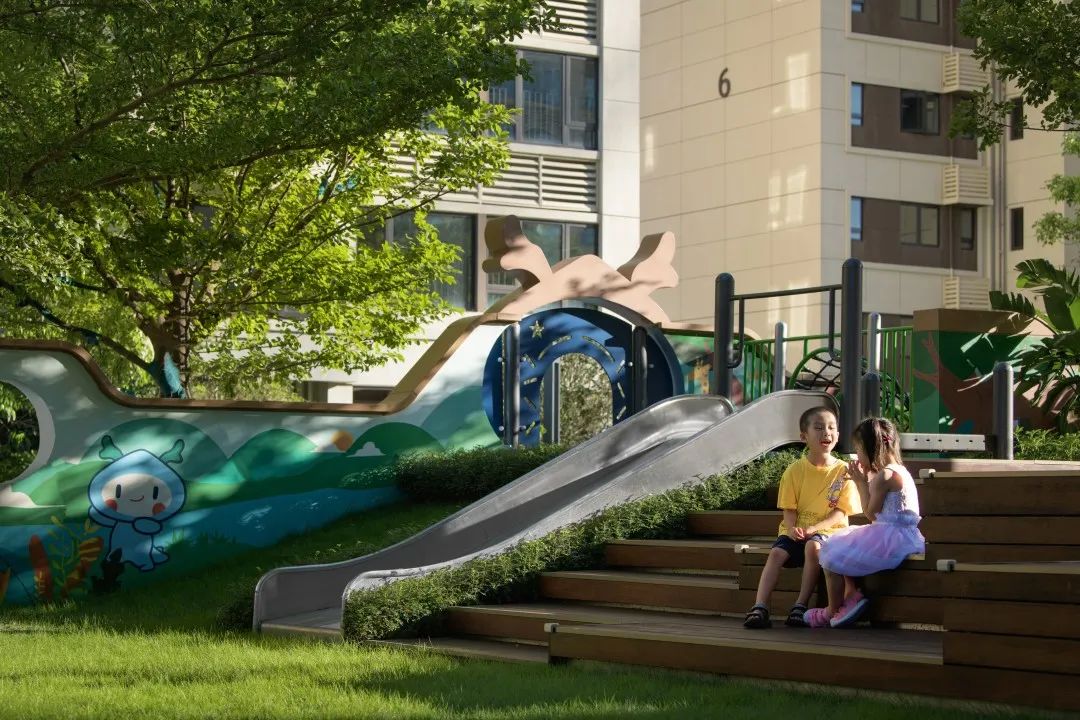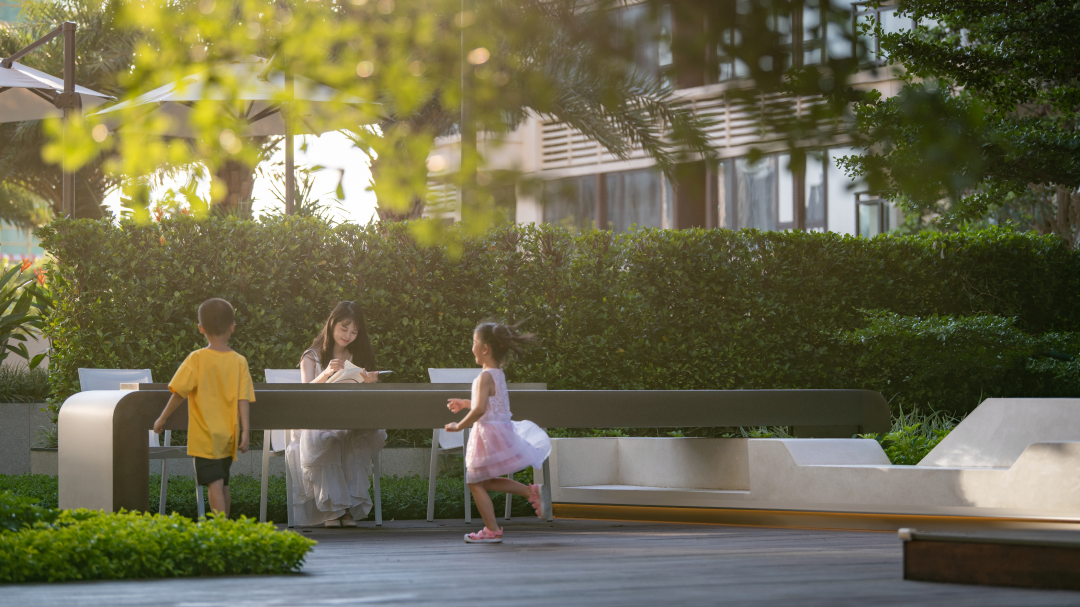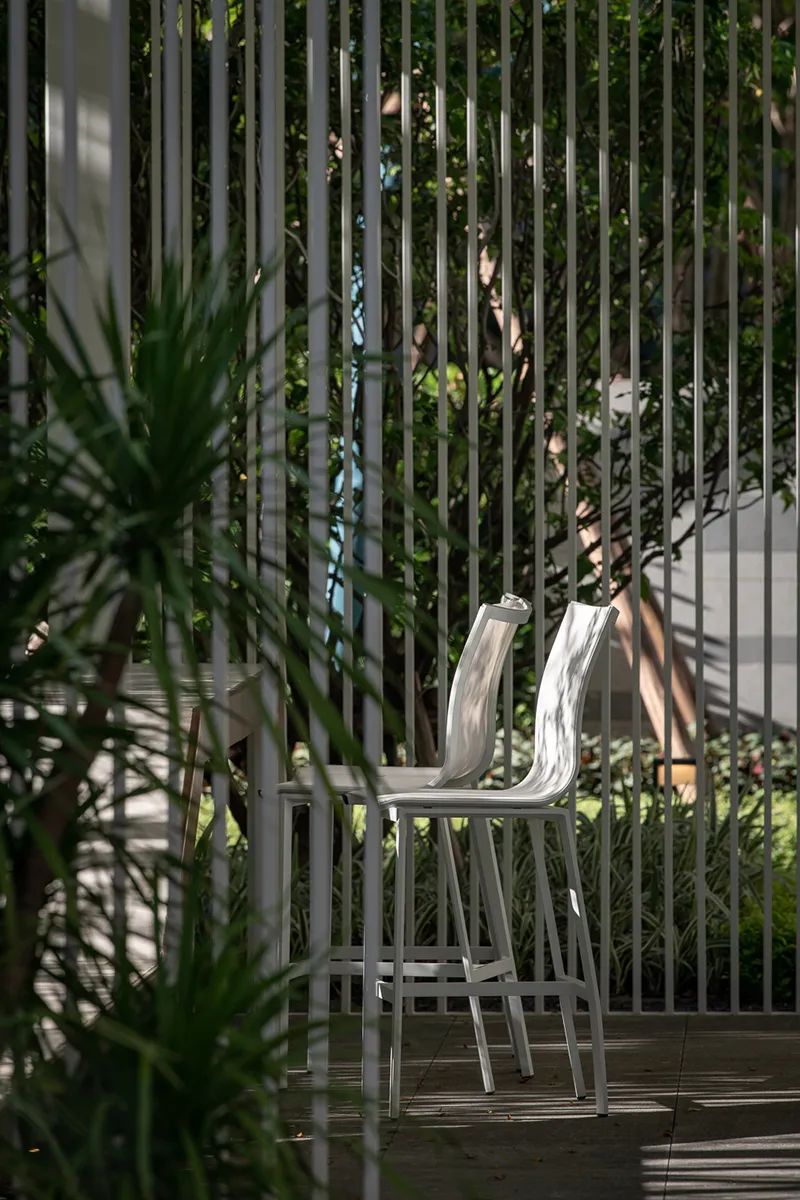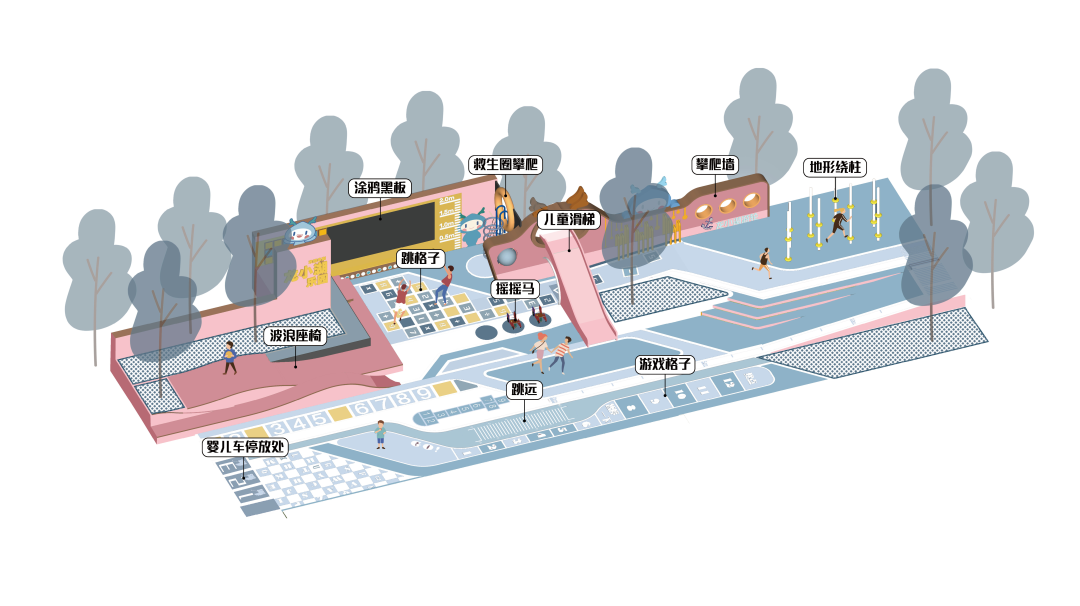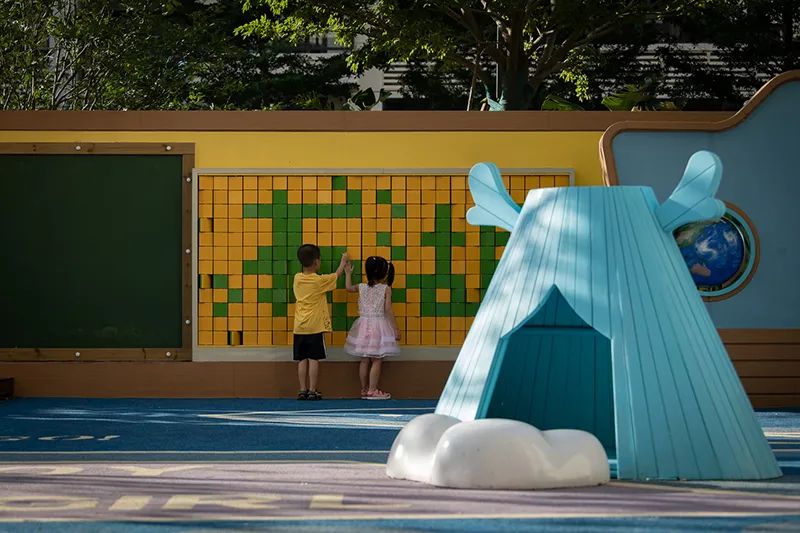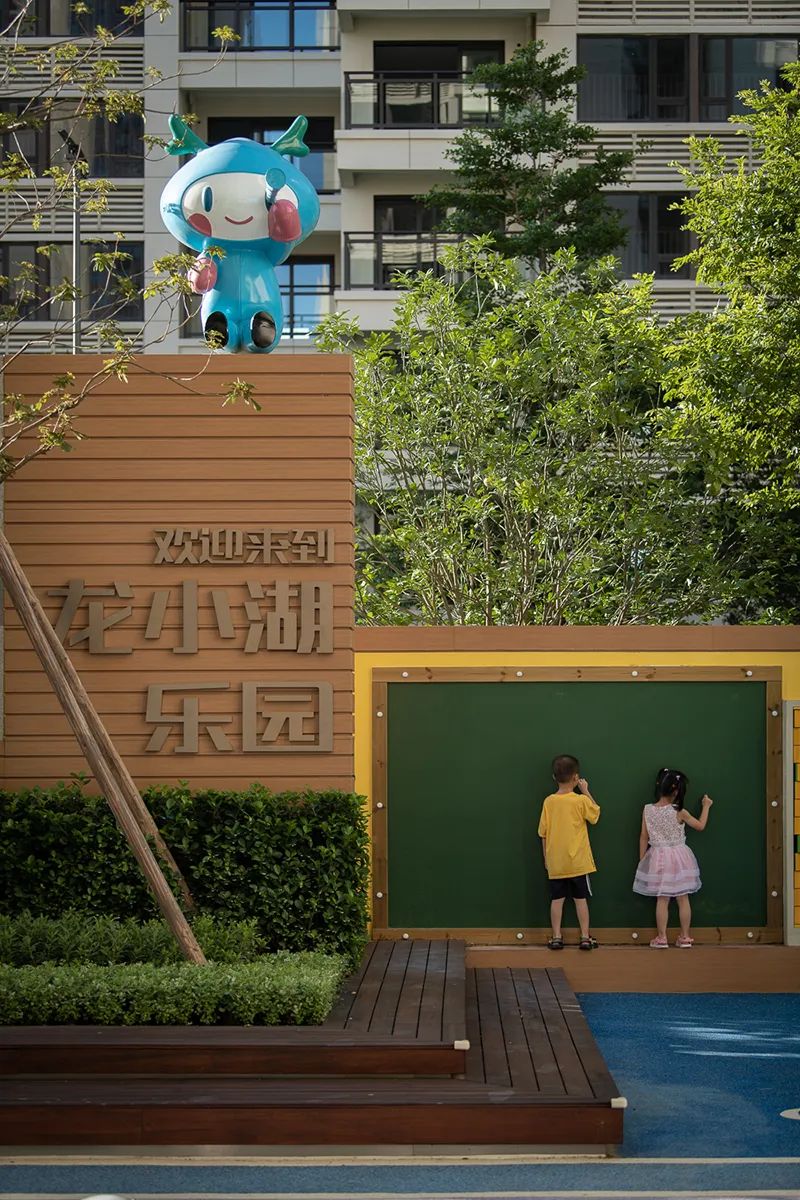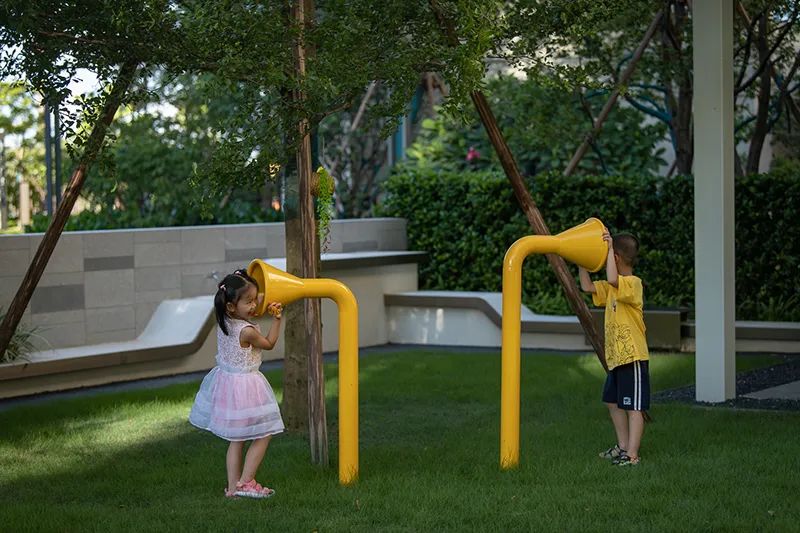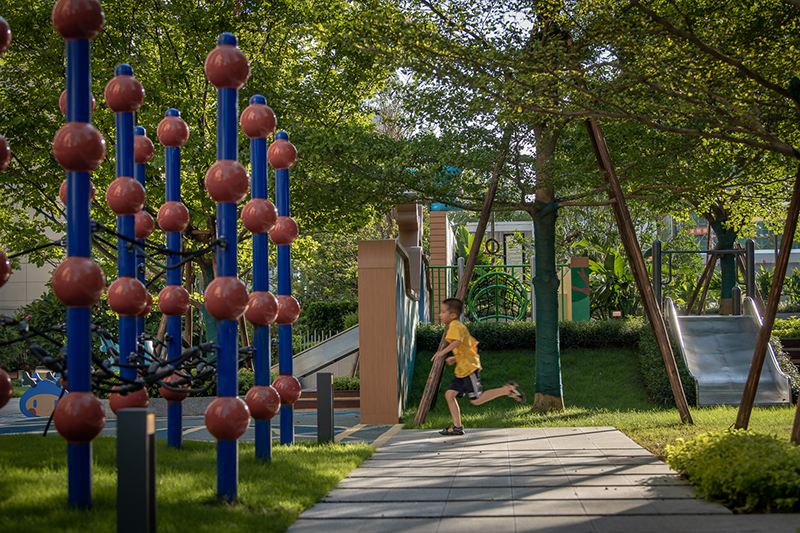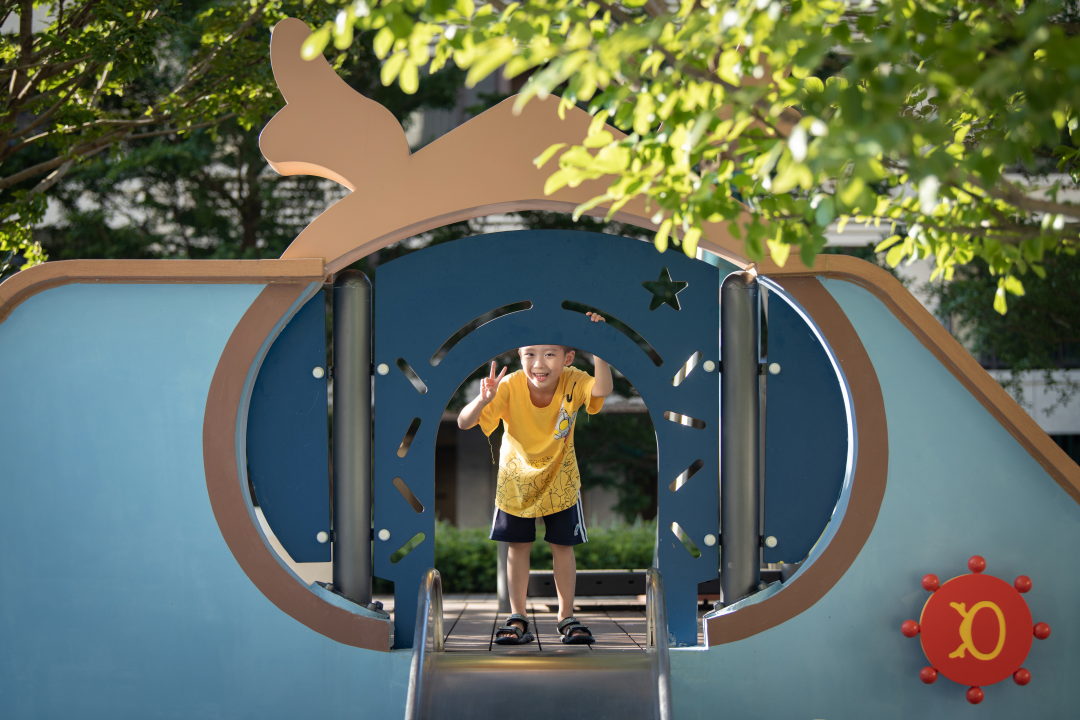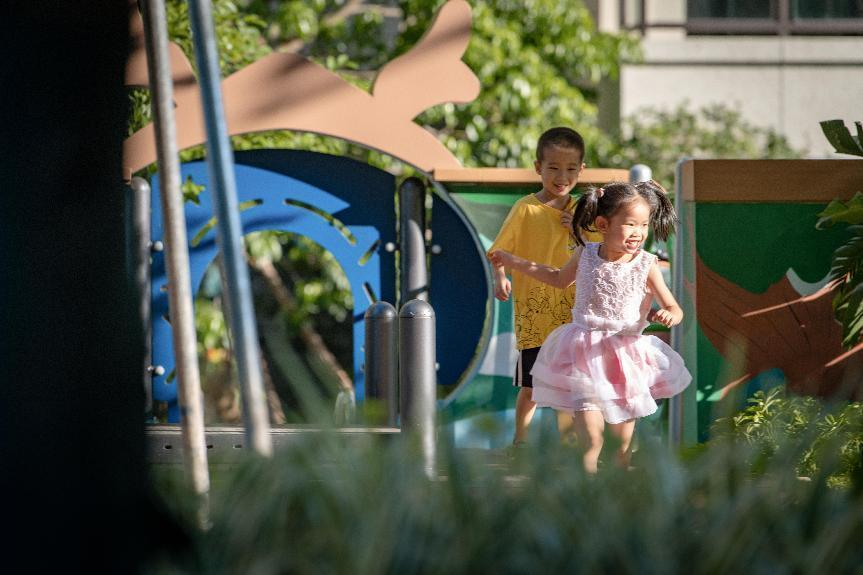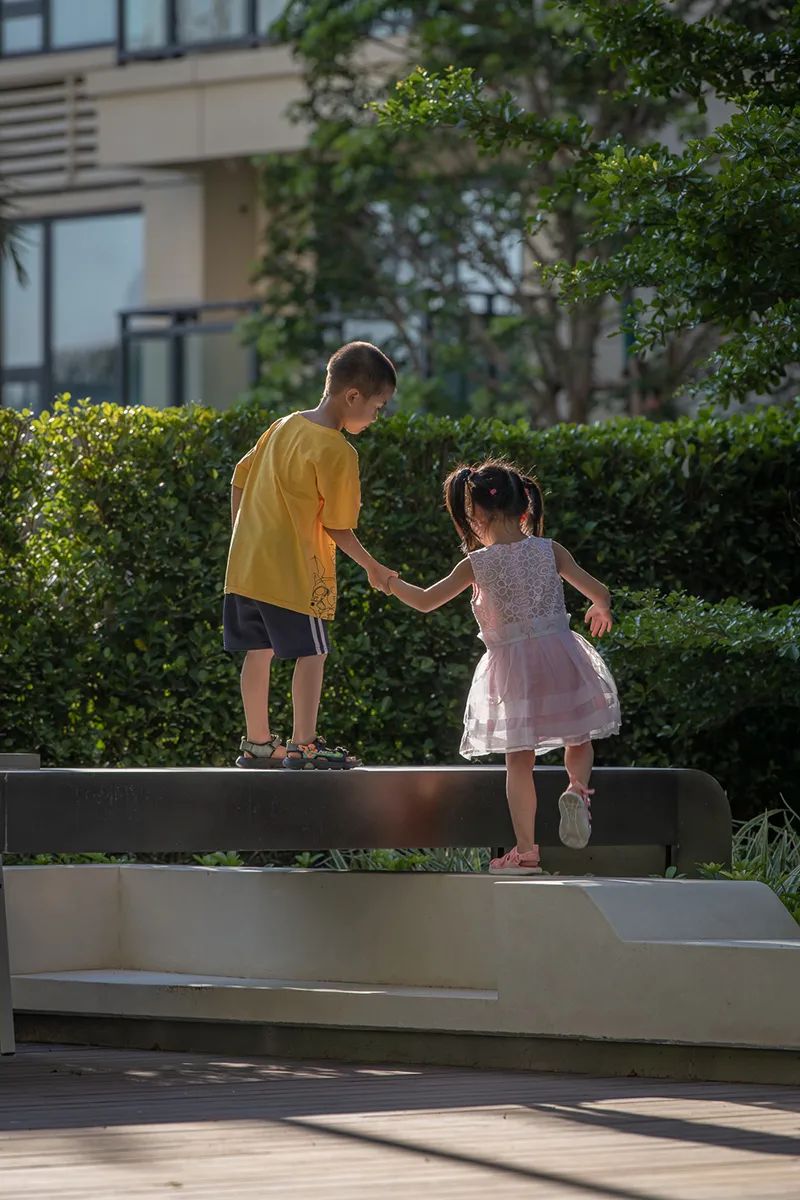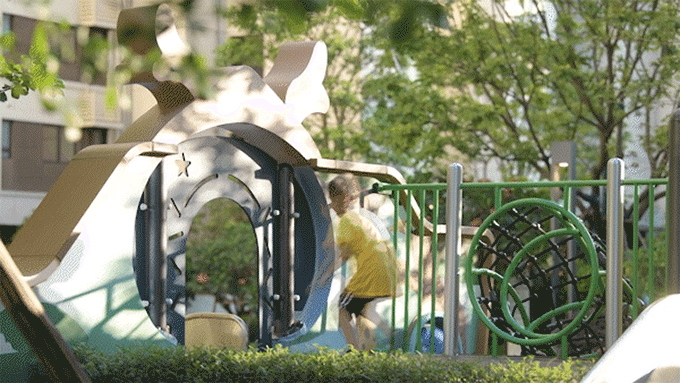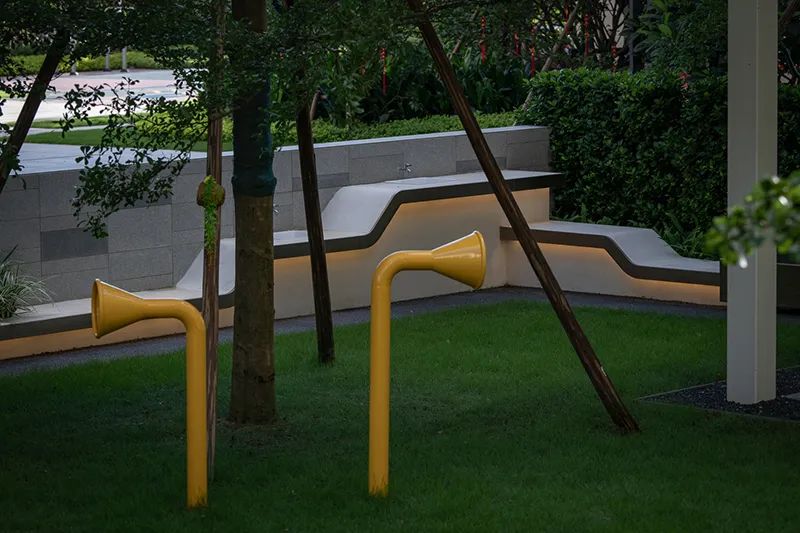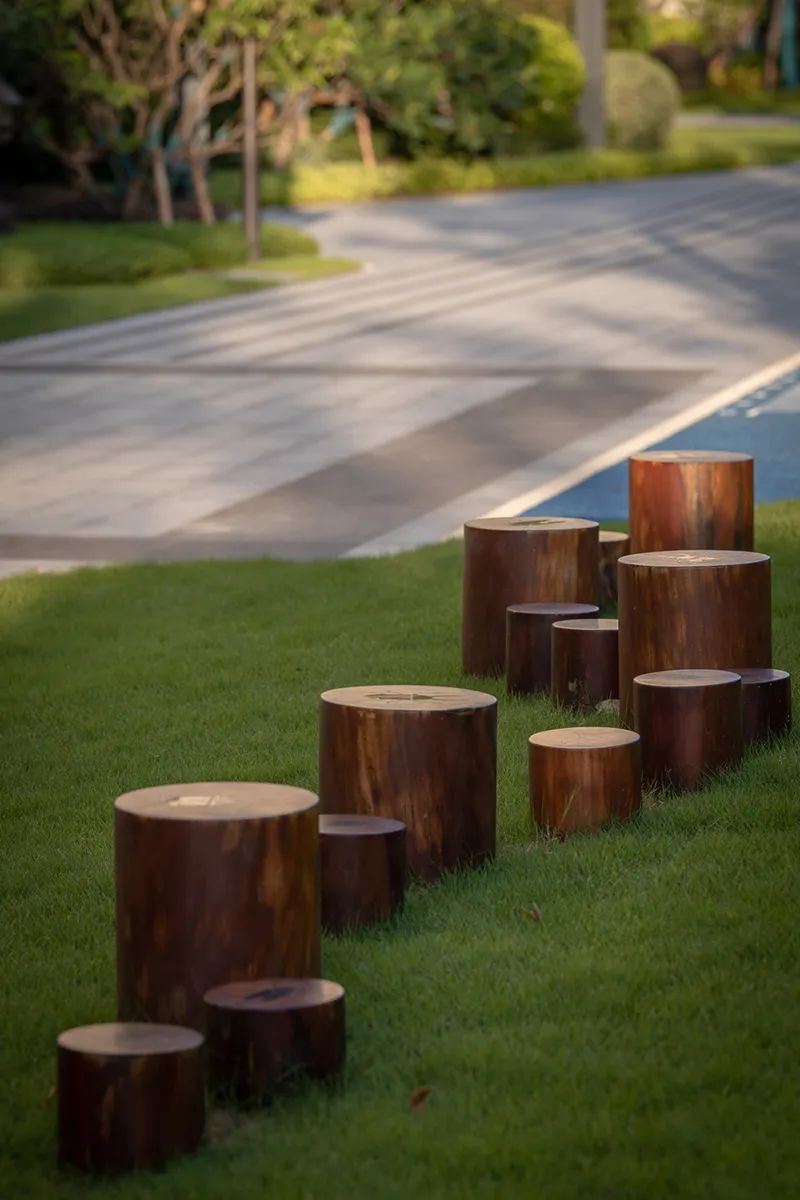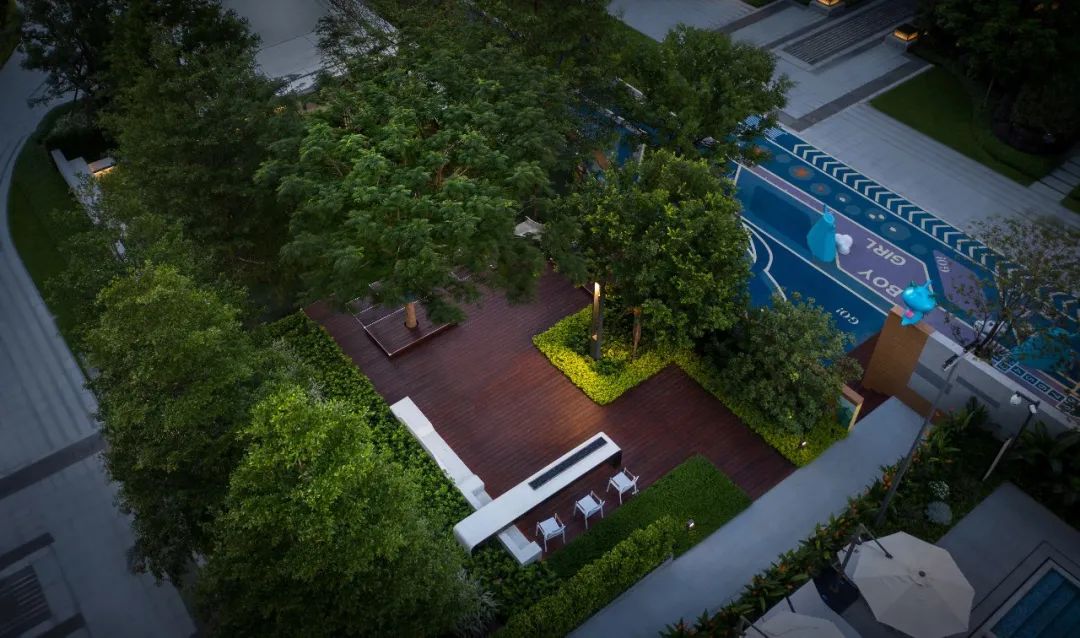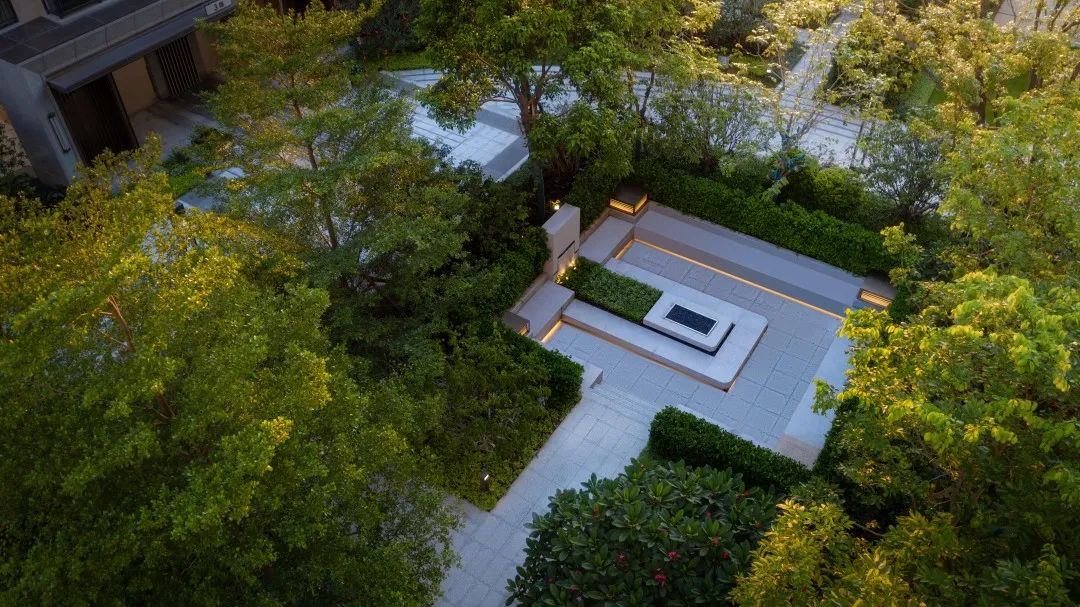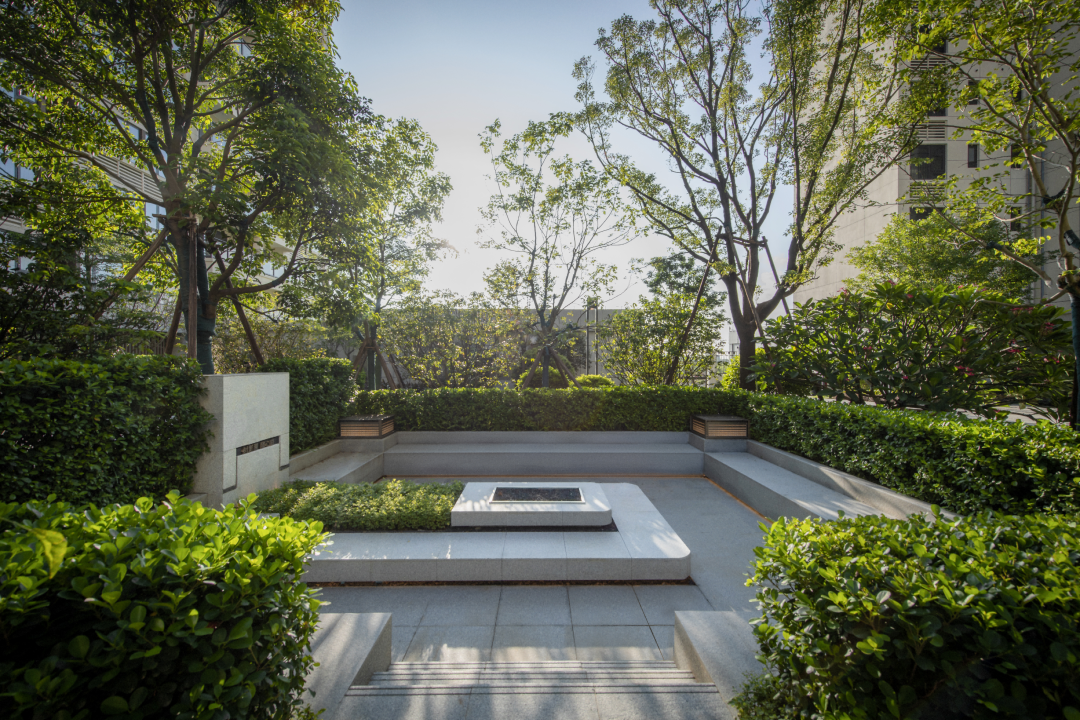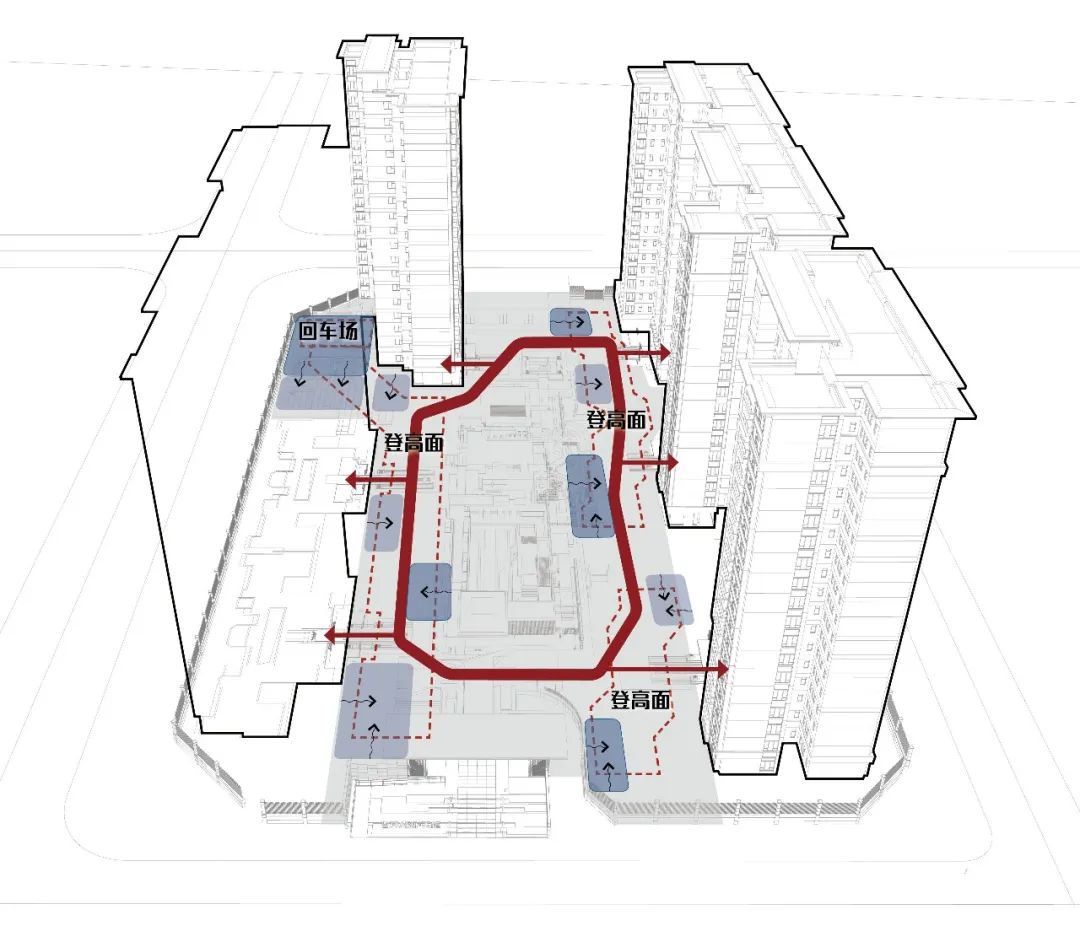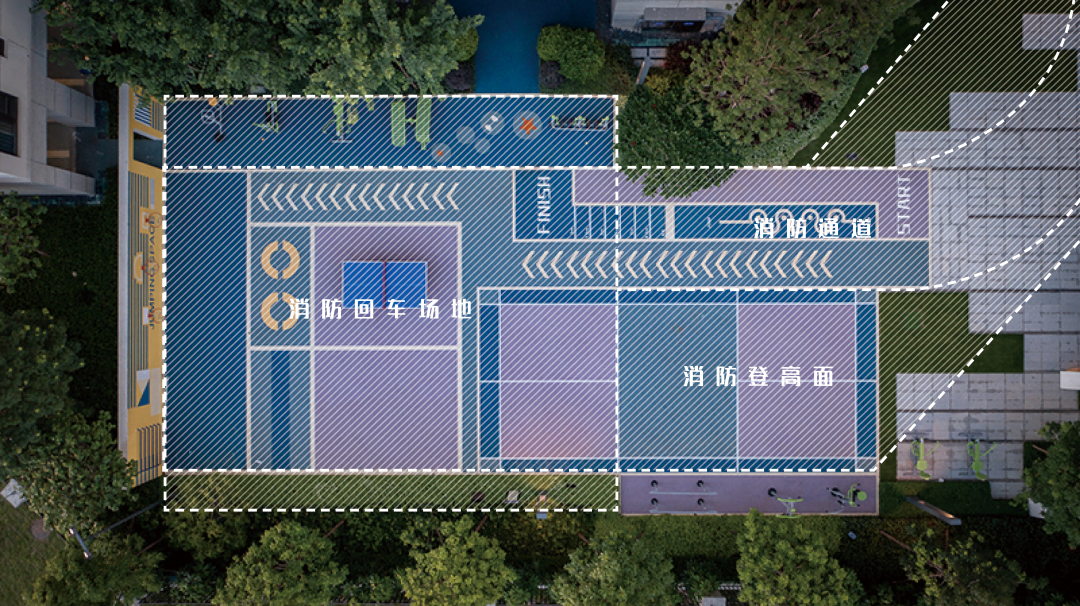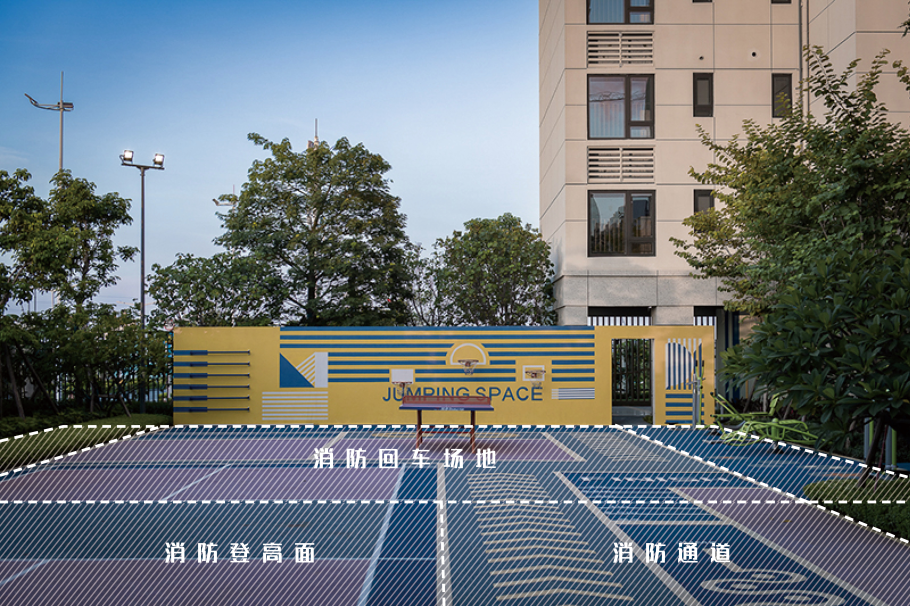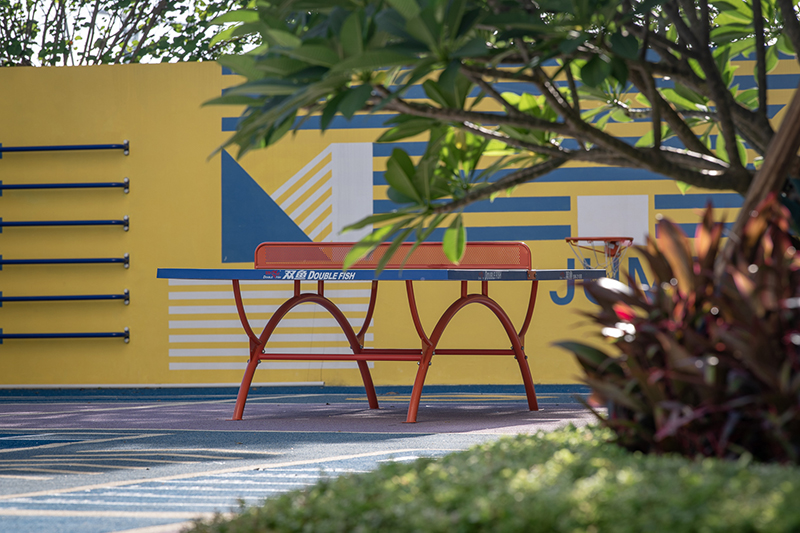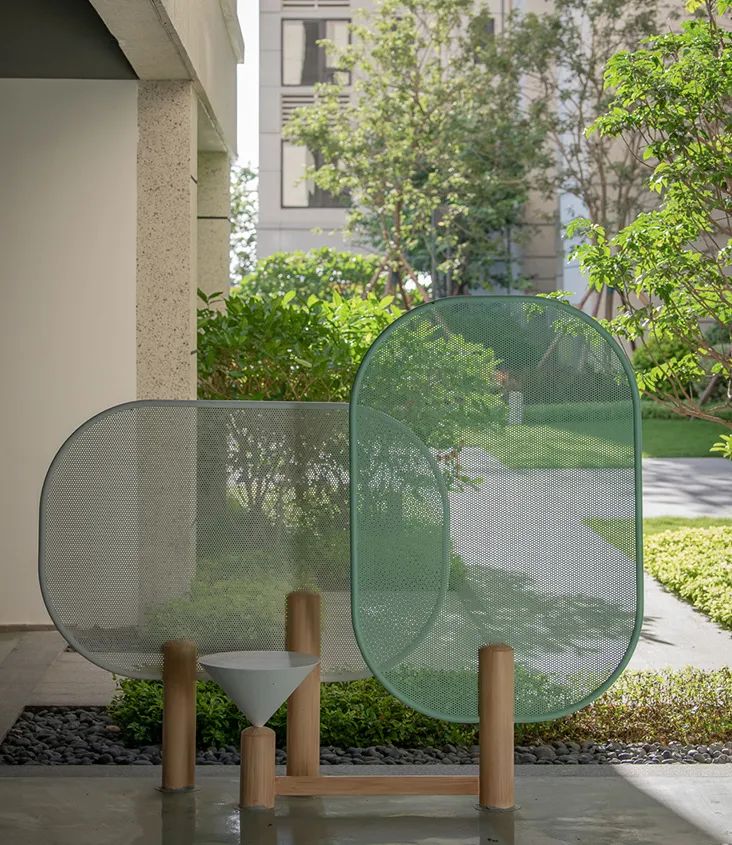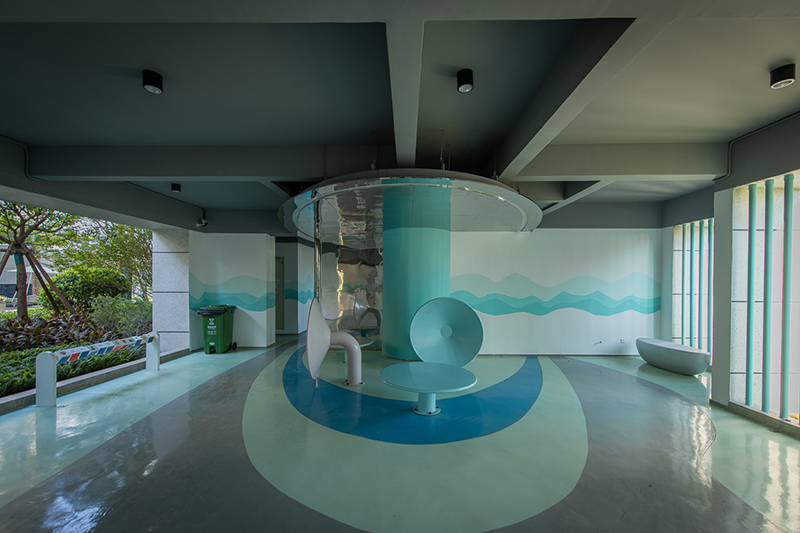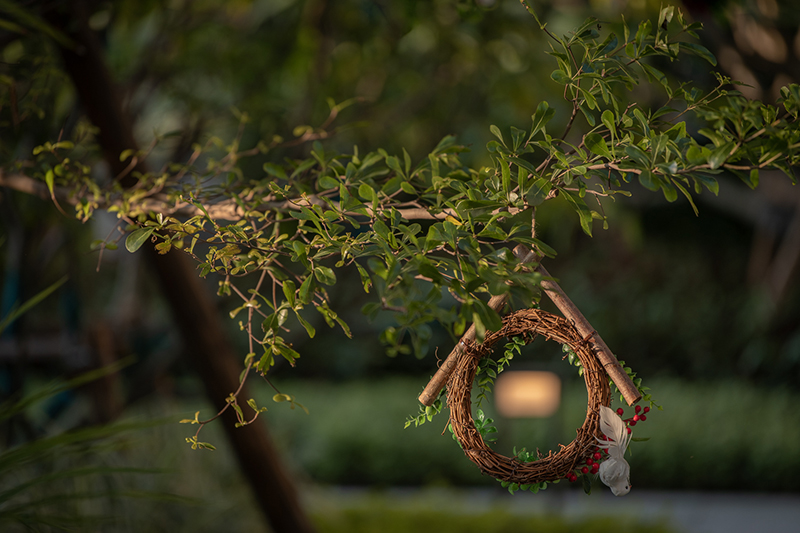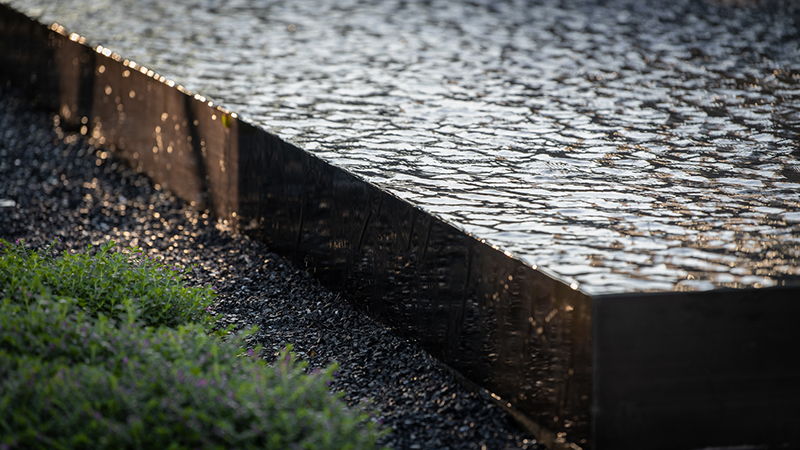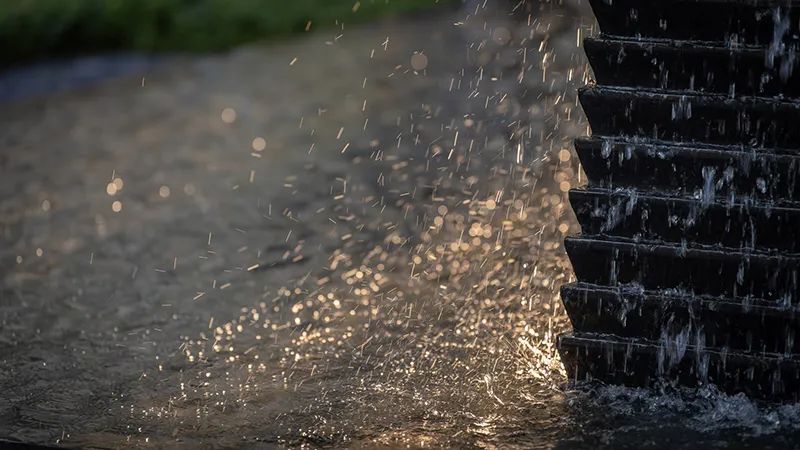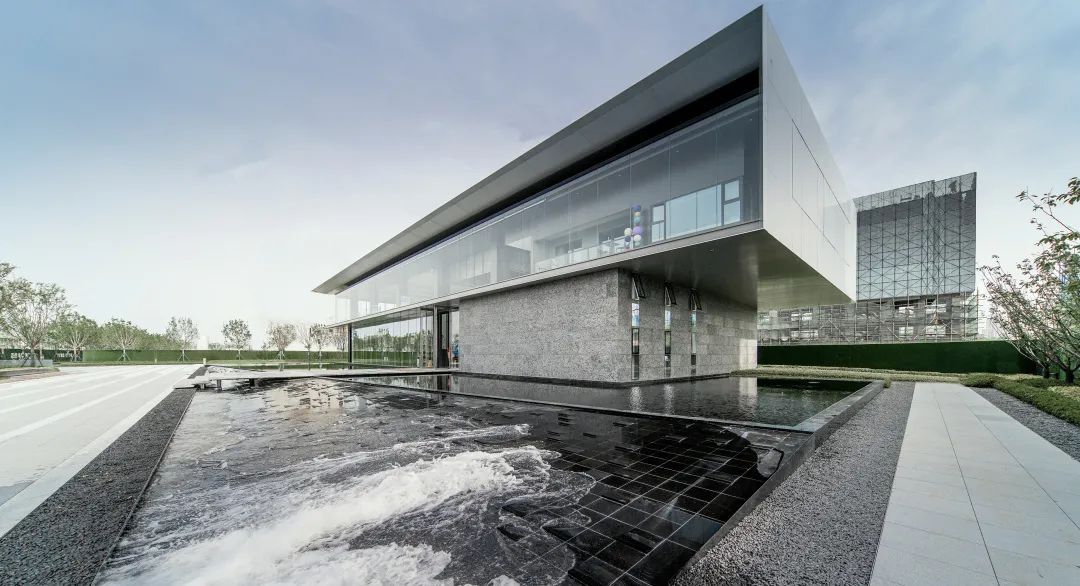与森共融·多维立体森居
珠海龙湖天奕院
所有的设计首先要满足功能的需要,即使在最具艺术气息的设计中还是要秉持功能第一的理念,然后才是它的形式。
All designs must first meet the needs of function. Even in the most artistic design, the concept of "function first" should come first, and then its form.
01 项目概述 Project Overview
项目位于珠海,东临南海,南近珠海北站,坐落于高新产业集聚、发展潜力巨大的TOD交通枢纽新区。FLO为本案打造了滨海度假的精致生活空间,在极致的小地块项目实践中策略性的将社区空间、人居生活融合一体,打造独一无二的度假体验。
The site is located in a new TOD district in Zhuhai, having South China Sea at the east and Zhuhai North High-speed Railway Station to the south. FLO’s project vision is to create a seaside residential community with integrated and unique holiday experience in a small constrained site.
02 三大难点 3 Main Challenges
Challenge 1: Limited open space and restricted functional planning
1.场地四周由公寓围合而成,内部可利用空间约7500平米,功能空间局限。
Insufficient space - The site is enclosed by apartment blocks with very limited open space at only about 7500 square meters.
Challenge 2: Large firefighting surfaces restricting layout planning
2.消防扑救面大,约占核心景观用地的40%,对核心区绿化种植及功能布局限制较多。
Large firefighting area - The fire fighting area occupies 2522 square meters of the open space, which accounts for about 40% of the core area and greatly impacts on the layout of functions and greenspace.
Challenge 3:Requirement of accommodating a swimming pool within the landscape
Accommodating a swimming pool - The restricted site also needs to incorporate a swimming pool and other amenity functions within the landscape.
03 设计理念 Design Concept
由于基地内部空间不足,景观需要打破常规设计手法而进行景观空间功能的多维度交融、叠加、延展。我们受到“游艇理念“的启发,进而打造多元复合的集中式景观。
Due to limited available open space, the design of the landscape takes on a non-conventional approach that aims to maximize integratedness and spatial juxtaposition. We are inspired by the compactness of ‘cruise liners’ and seek to achieve diversification of experiences in a centralized compact space.
‘Cruise Liner’ vs. ‘The Site’
Re-imagining of the Spatial System
04 设计解析 Landscape Design
Spatial Multiplicity: Sequences and Sightlines
台地型景观使建筑与景观具有丰富且一体化的层次感,视线上赋予了居民开阔的仪式感抵达体验。同时,台地的设计为小区生成了天然的“屏障”,弱化了城市的噪音、阻隔了城市的粉尘污染。
The terracing design at the entry integrated and enriched the arrival experience, visually creating a sense of significance and hierarchy. At the same time, the terracing creates a natural "buffer" for the residential community from noises and pollution from the city.
Spatial Multiplicity: Programme Integration with Groundworks
核心景观区 - 漂浮无边泳池
无边泳池作为北围三期打造的重点,这个具有“漂浮”感的绿台化为了偌大森林中的平镜。无边泳池与跌水合二为一,留给居民一片任由他们遐想、沉醉的海湾生活世外桃源。
The centerpiece of the landscape - the ‘floated infinity pool’ turns into a mirror sitting amidst the forest. The pool combined with water cascades created a getaway paradise for the residents where they can dream and indulge.
Spatial Multiplicity: Programme Integration with Blurred Boundaries
开放的草坪、木平台休憩区与半室外会客厅共同组成了林下的活动场景。设计通过下沉式交互空间的手法打造出半私密的弹性场地,让居民在户外交谈、休憩、游玩、看护时,不受外界的干扰。草坪另一侧廊架会客厅的半私密属性提供了一个夏季可乘凉的场所,并透过典雅的植物组团营造出高品质的景观氛围。
Forest activity room is comprised of an open lawn, a wood deck recreation area and a semi-outdoor reception pavilion. The space is partially sunken to create semi-privacy for undisturbed recreational opportunities. The semi-outdoor reception pavilion on the other side of the lawn provides shade during summer, and is surrounded by lush plantings to form the character of the landscape.
全地景龙小湖儿童活动场地,作为专为小区儿童设计打造的儿童游乐区,结合了邮轮的设计概念,按动静区以及年龄层段划分区域,结合阳光草坪打造全季候的儿童活动场所。
Longxiaohu playground is catered for children in the community. The cruise-ship themed playground is divided into active play and passive play areas for different age groups. Together with the sun lawn nearby forms an all-season childrens activity site.
艺术会客厅作为专属性的室外休憩空间,嵌入于景观核心轴的空间尽端。透过规整的绿篱及乔木种植的围合,营造出了静谧的奢享卡座氛围。
The outdoor living room at the end of the core landscape zone is designed to be semi-private in a tranquil setting, enclosed by delicate hedgerows and tree plantings.
Spatial Multiplicity: Programme Integration at Peripheral Edges
空间的本质不是非黑即白,而是相互渗透相互延展的边界关系。我们在建筑边缘与架空层的灰空间边界通过软硬质交融的手段及功能的置入,将架空层功能延伸与外部空间拉接,使内外连贯形成可延展的功能活动场地。位于登高面上的人行环路周边也利用了软性的设计手段,透过弹性家具与进退错落的小草坪来消隐登高面的观感。
The in-between spaces are equally important. We aimed to integrate and extend functions into peripheral areas to connect with ground floor’s openfloor spaces to maximize efficient use of space with strong purposes and programme connectivity. The main circulation path on top of firefighting areas are also designed to have softened edges with furnishing zones and setback lawns to dissipate the rigidness of hard edges.
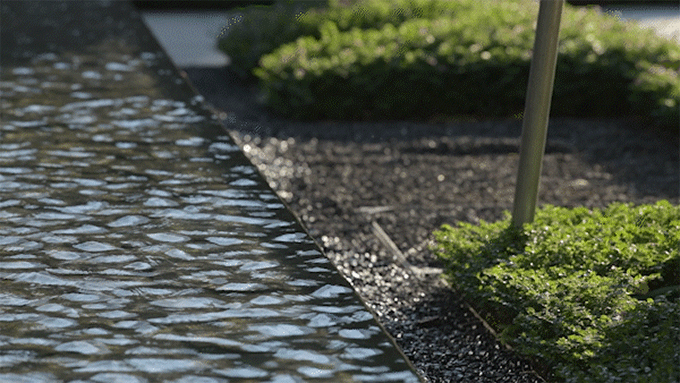
设计团队:付凯,孙建浩,王冰艳,宋劲海,杨立慧,王江露,熊陆辉,潘晓萼 
